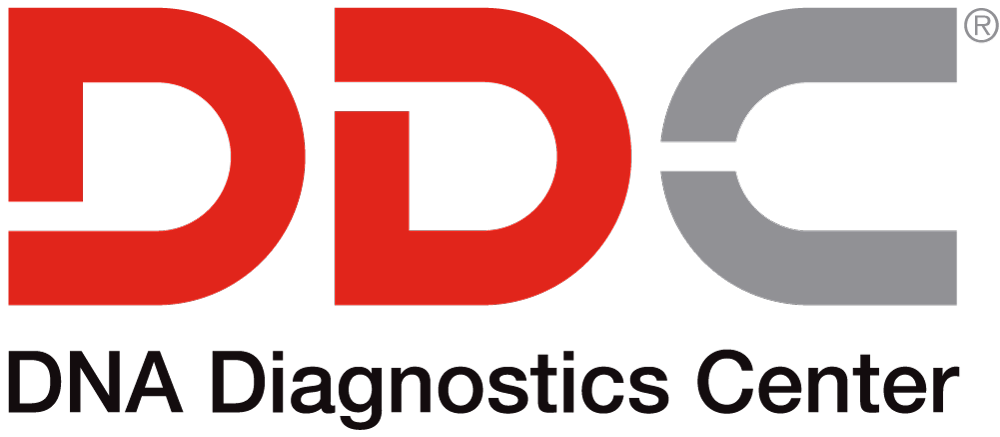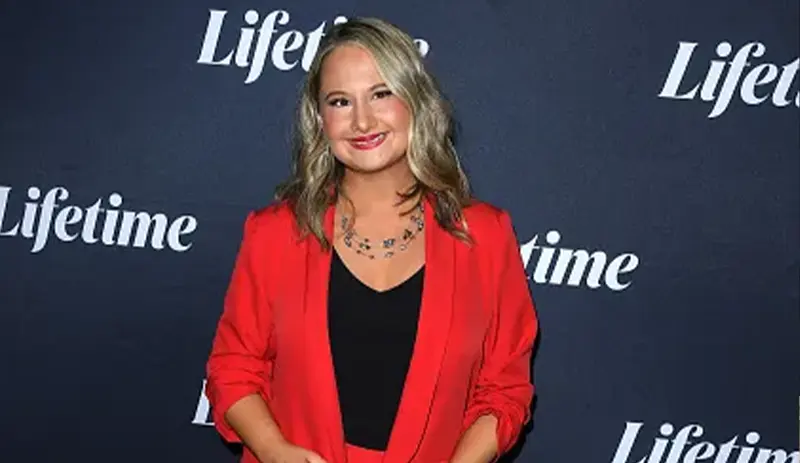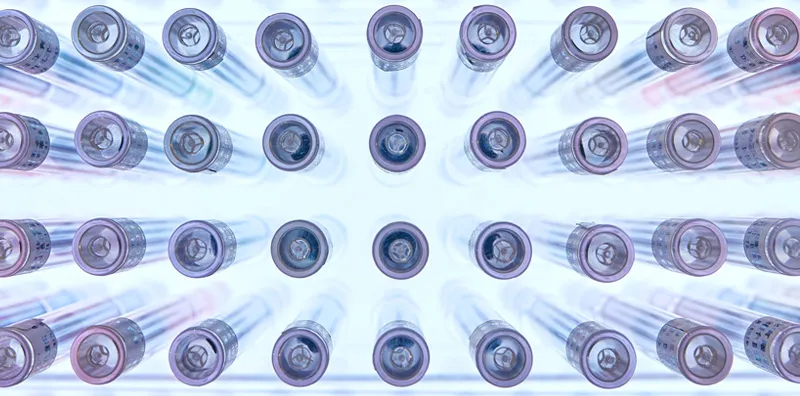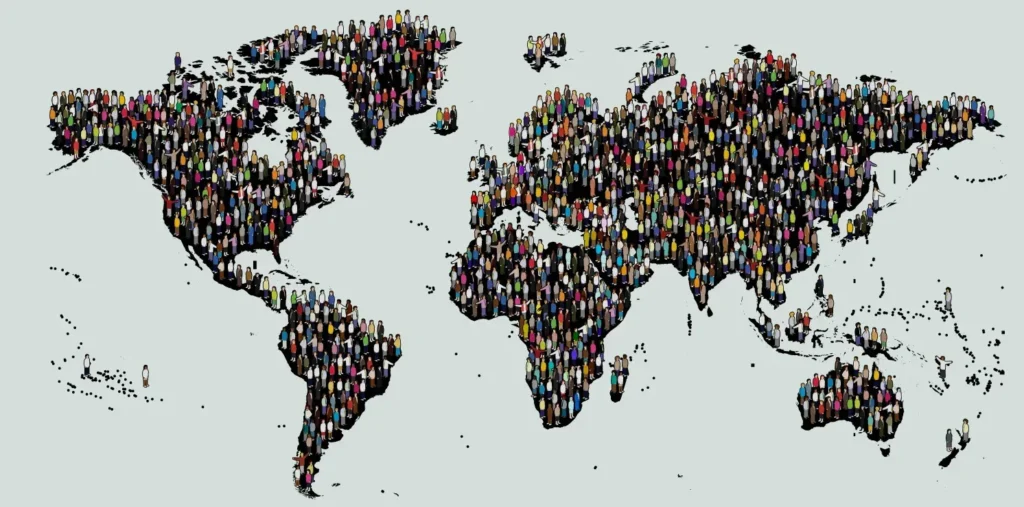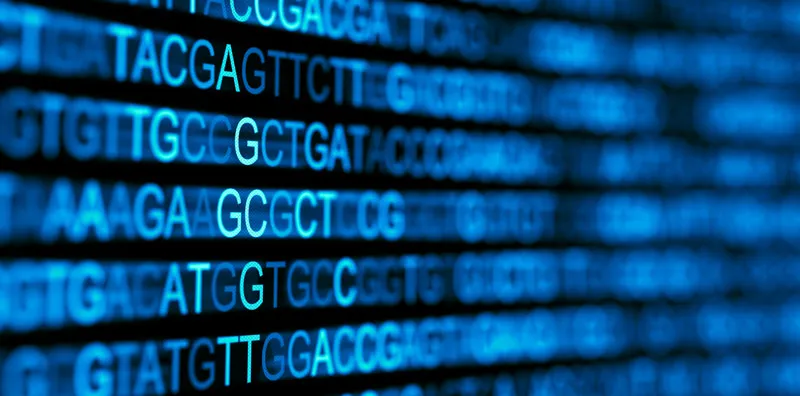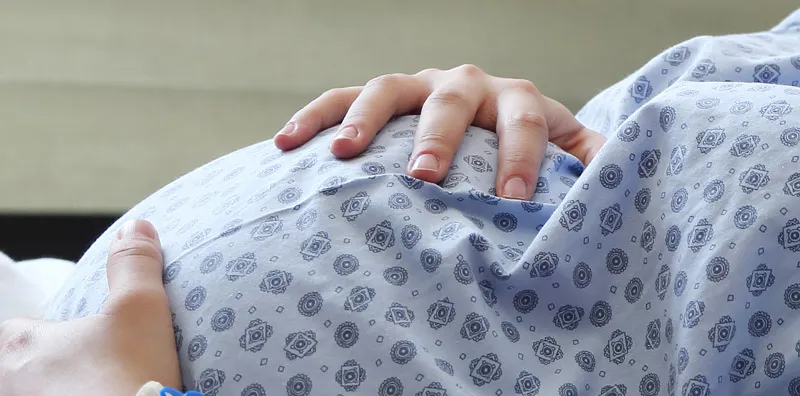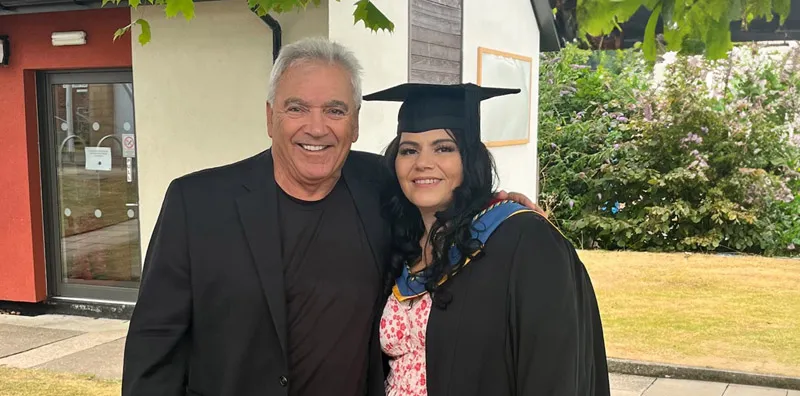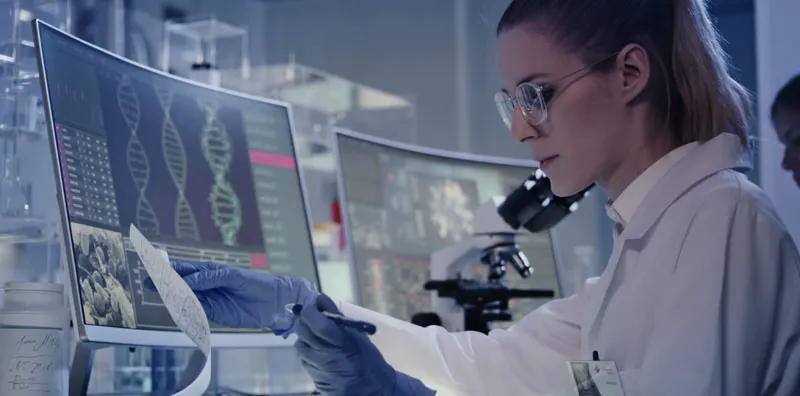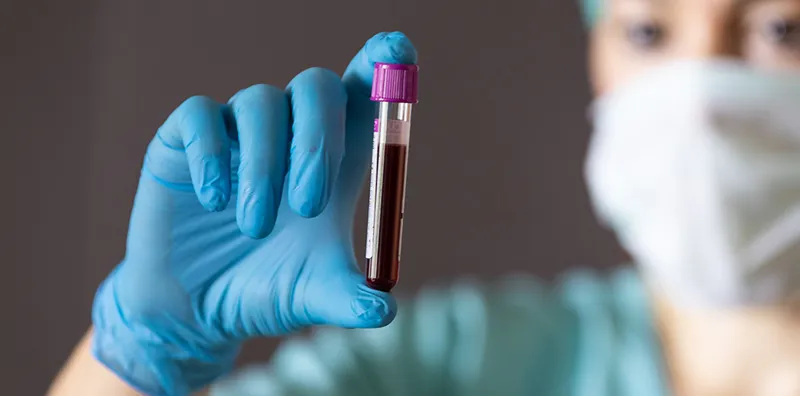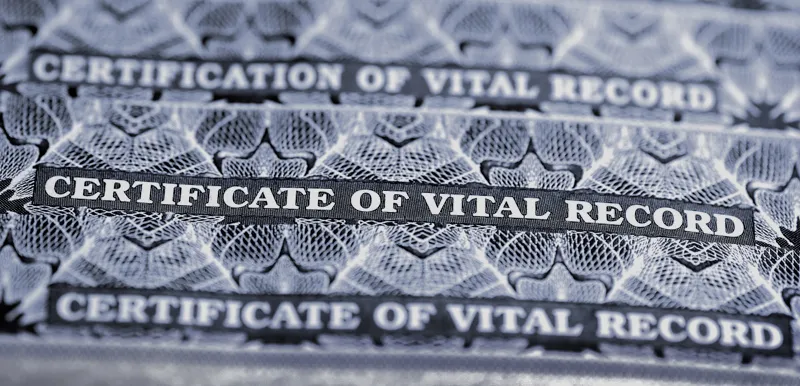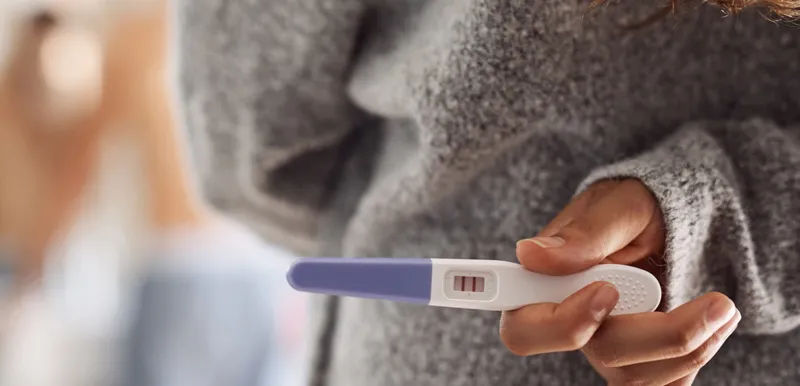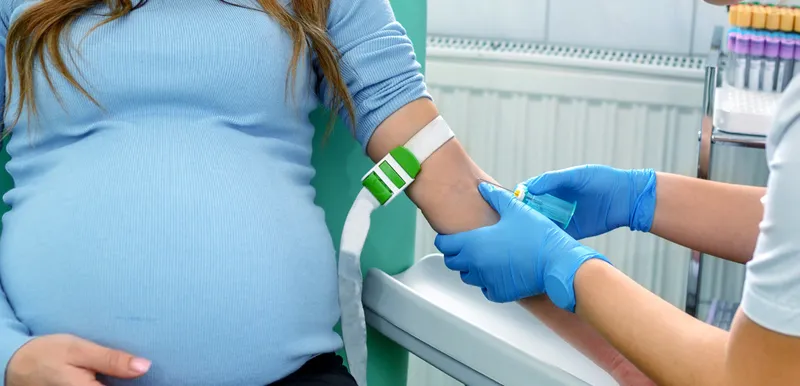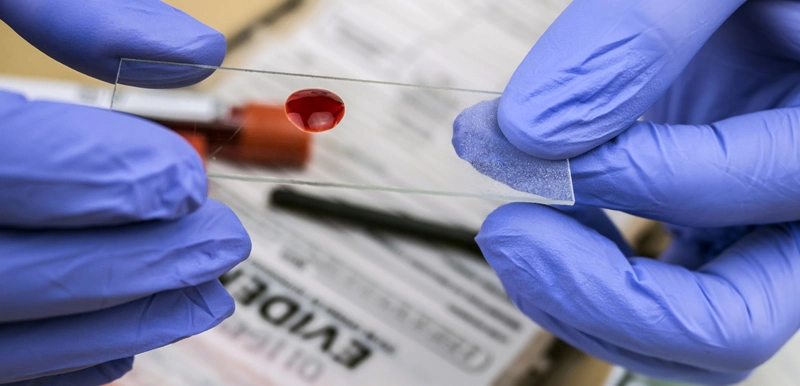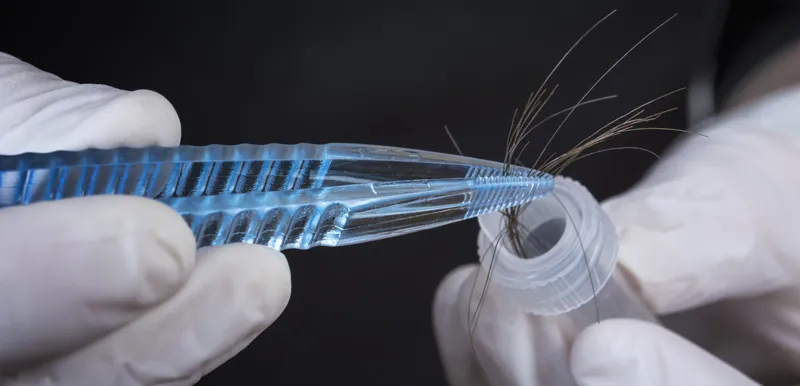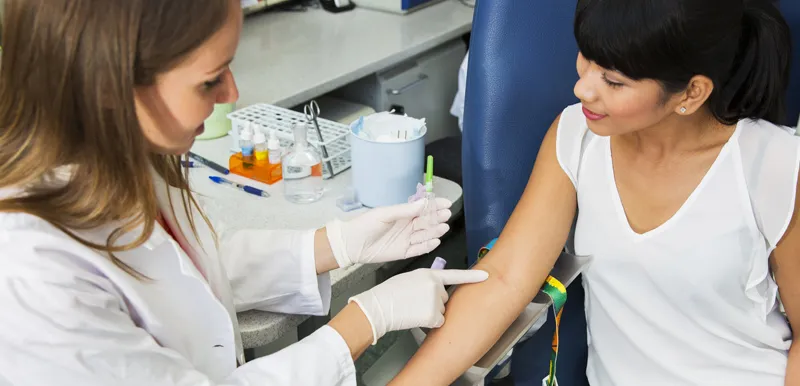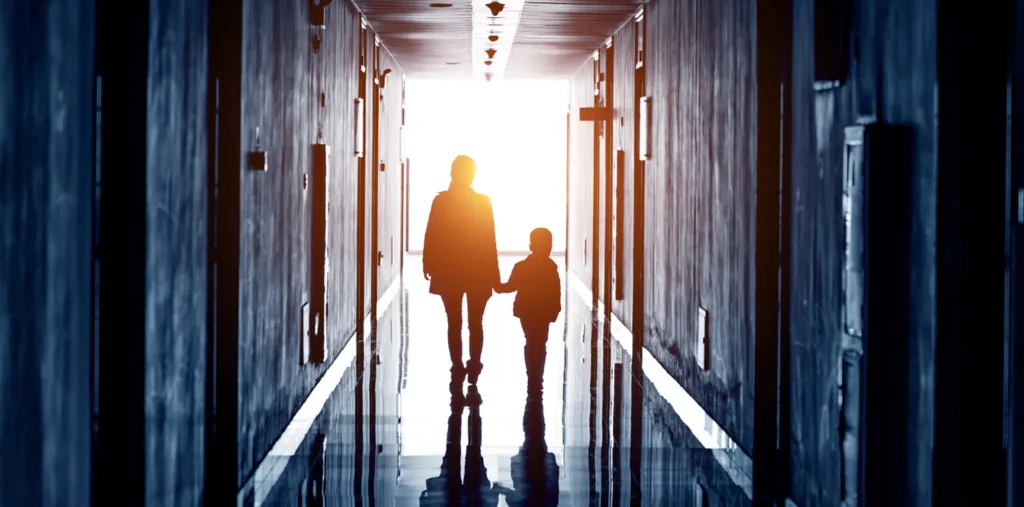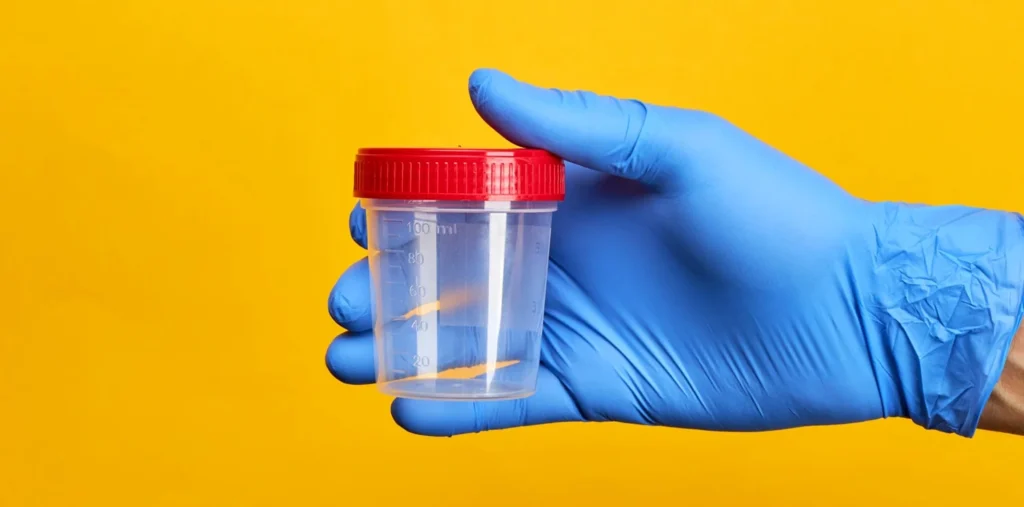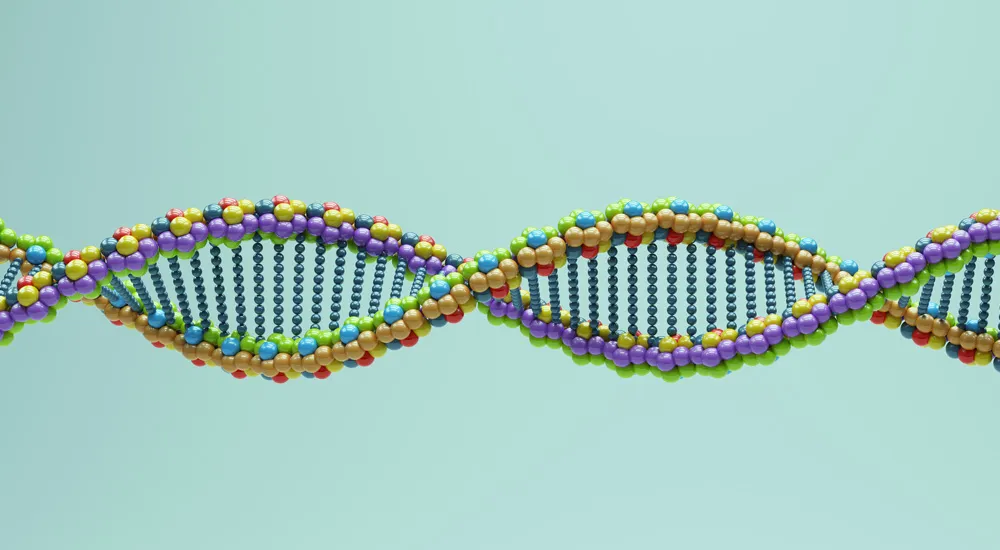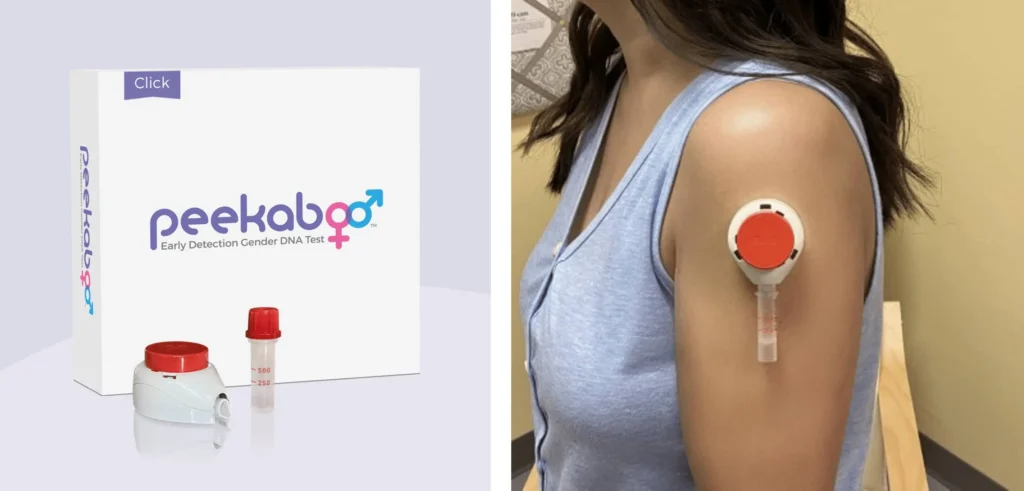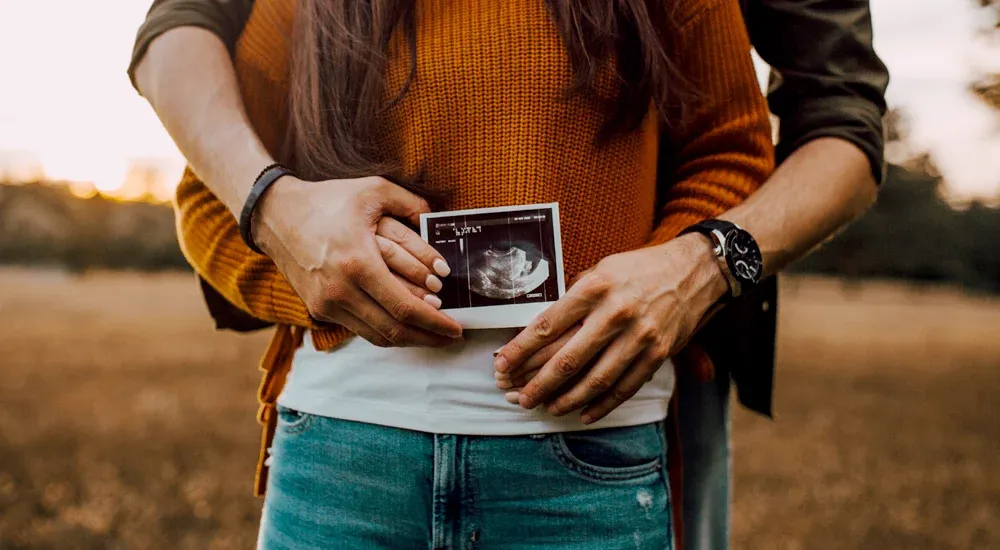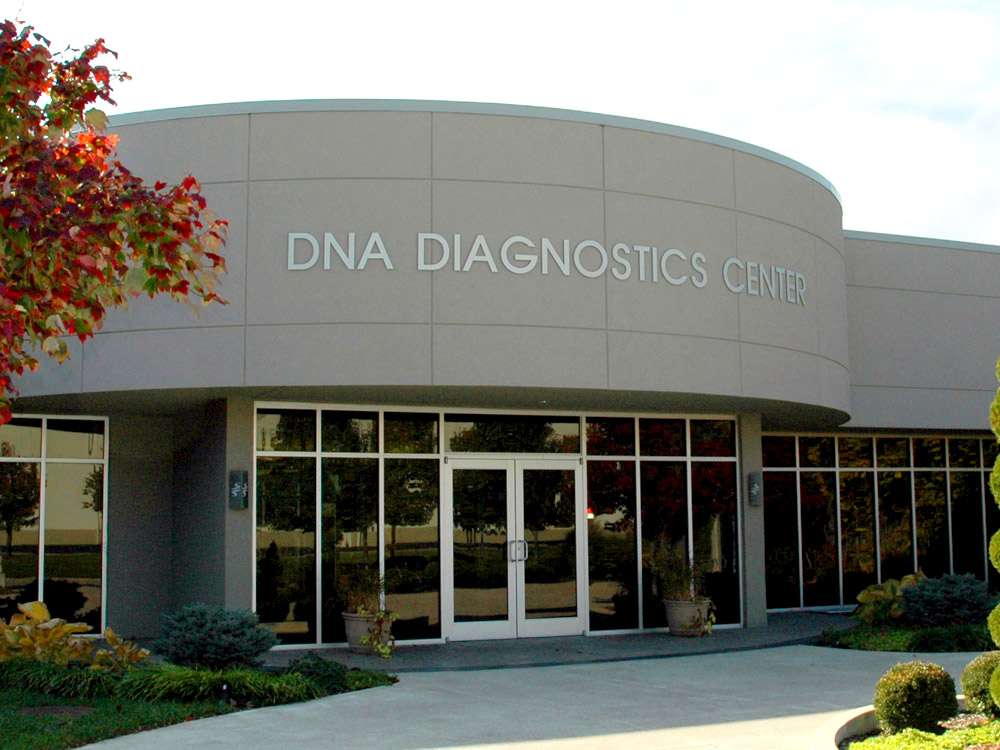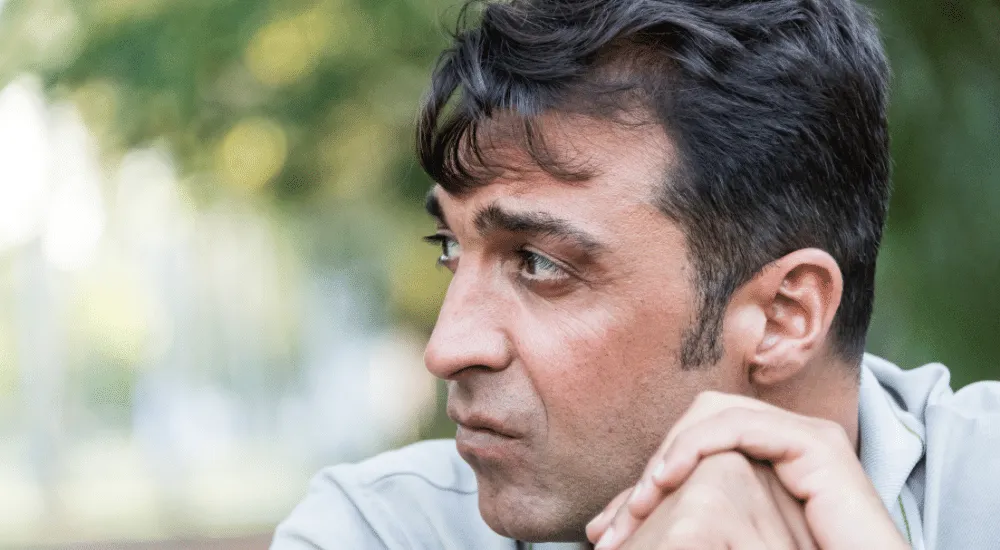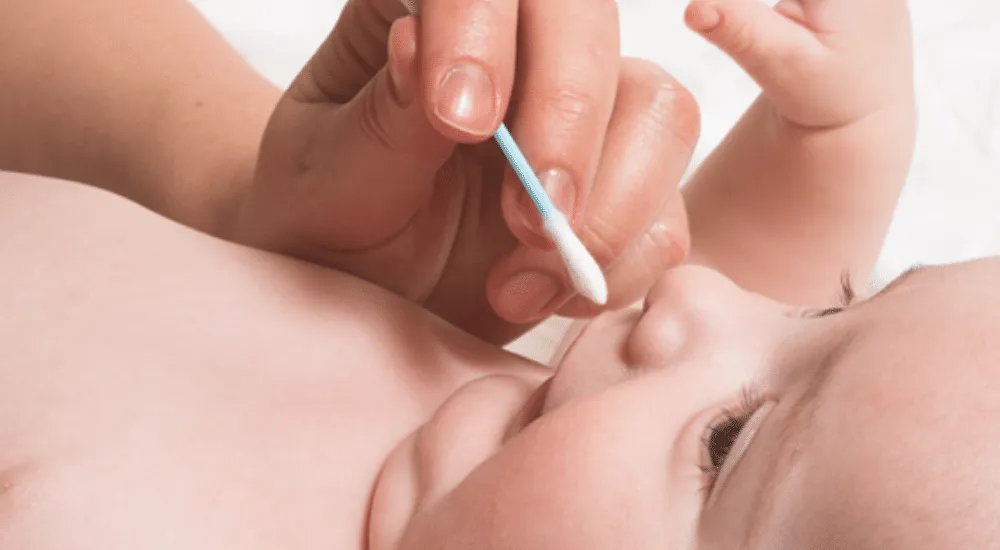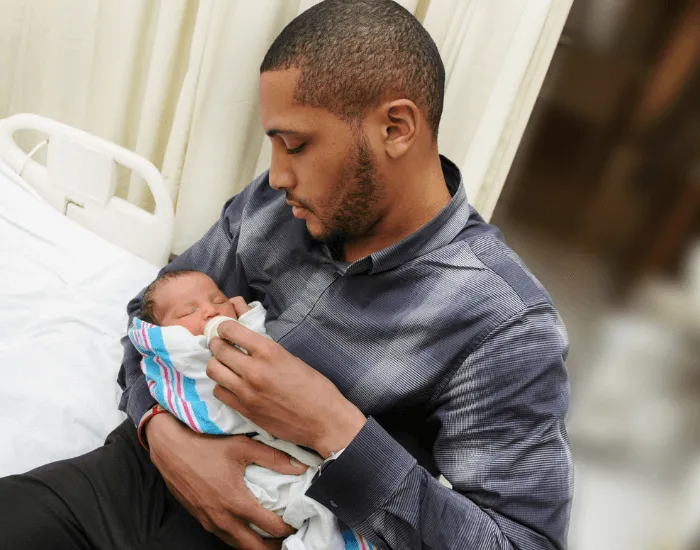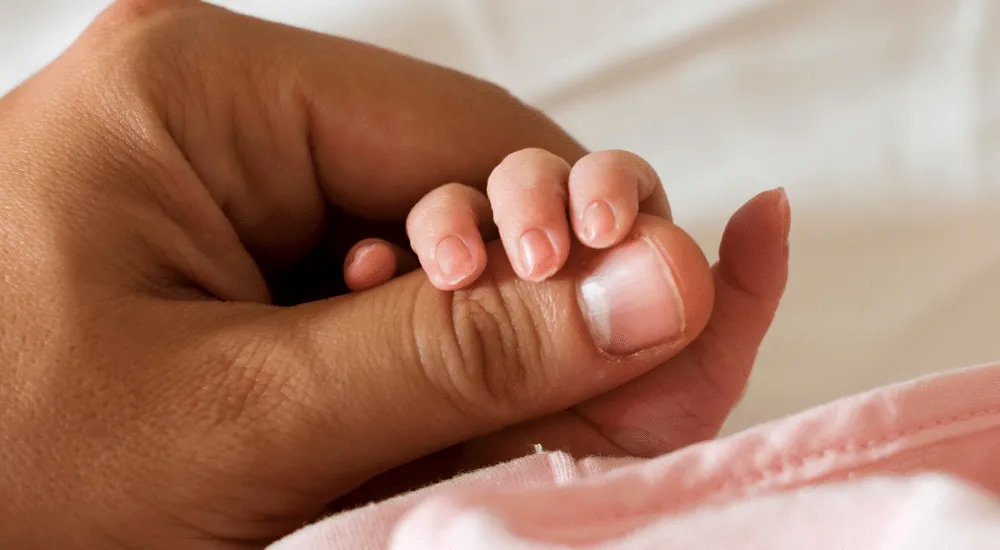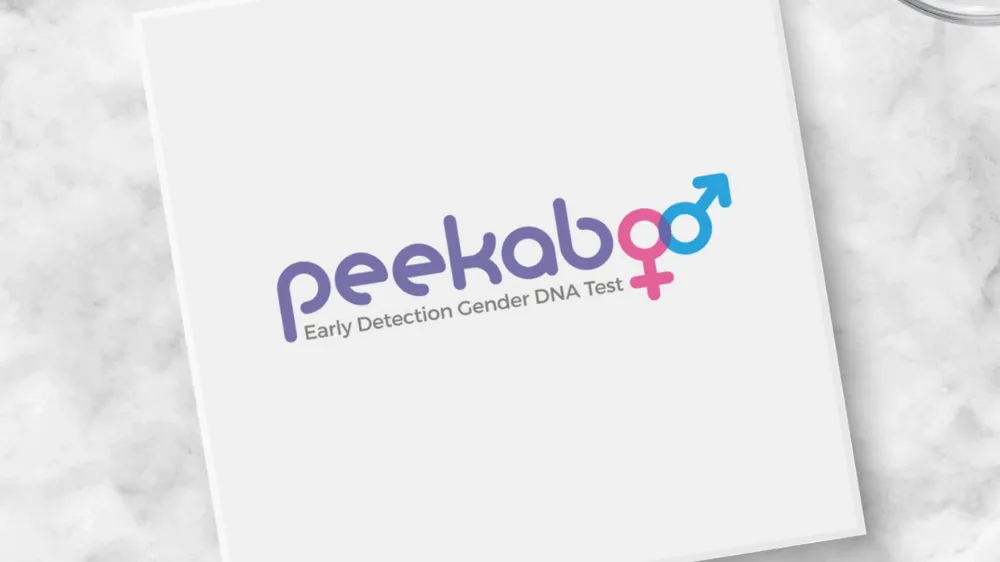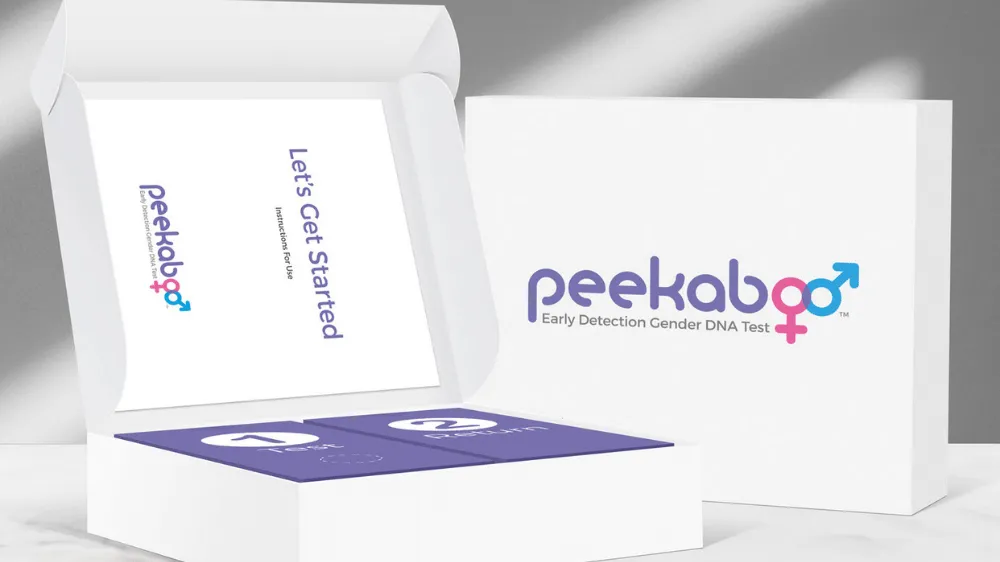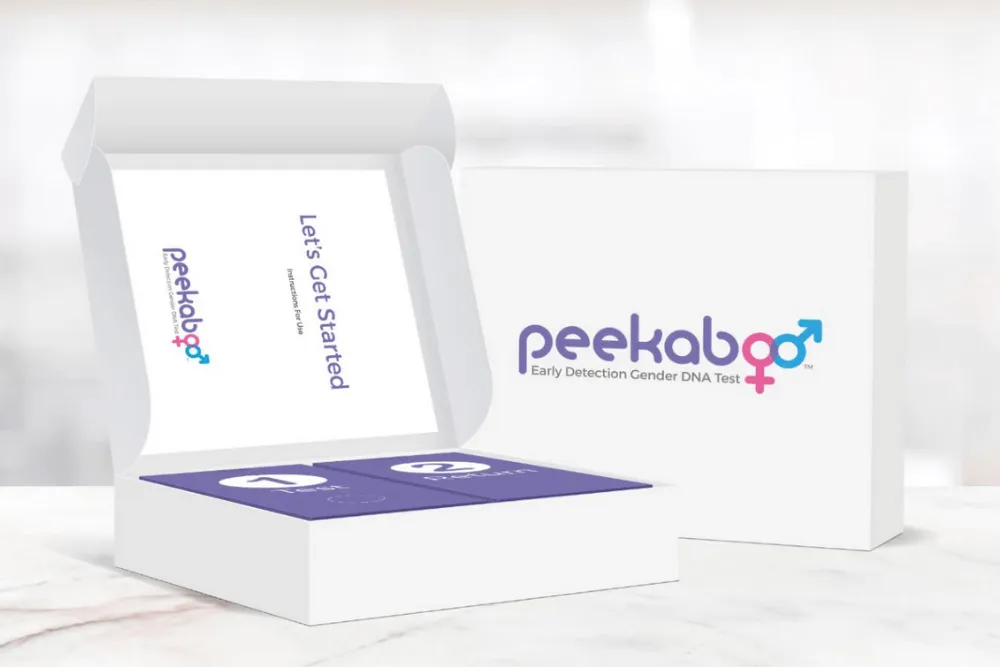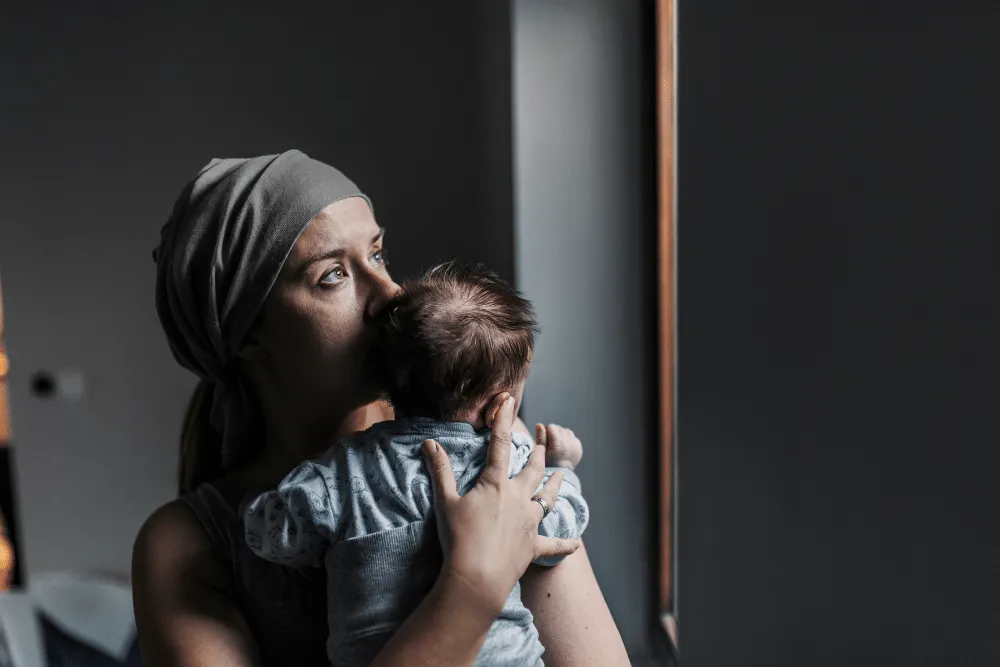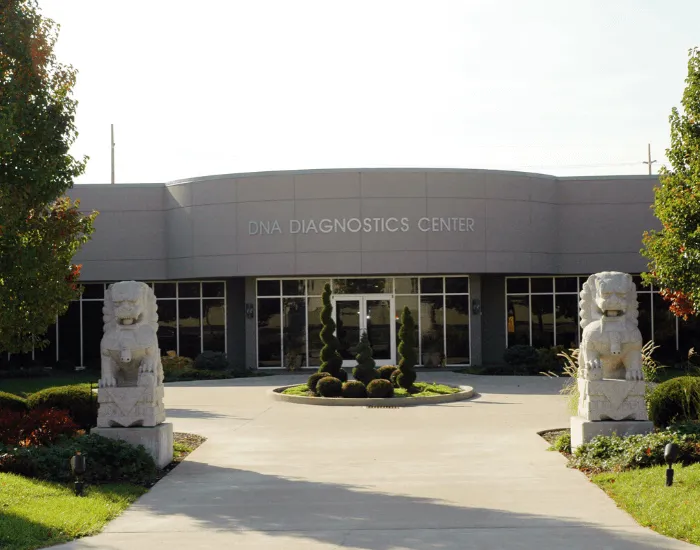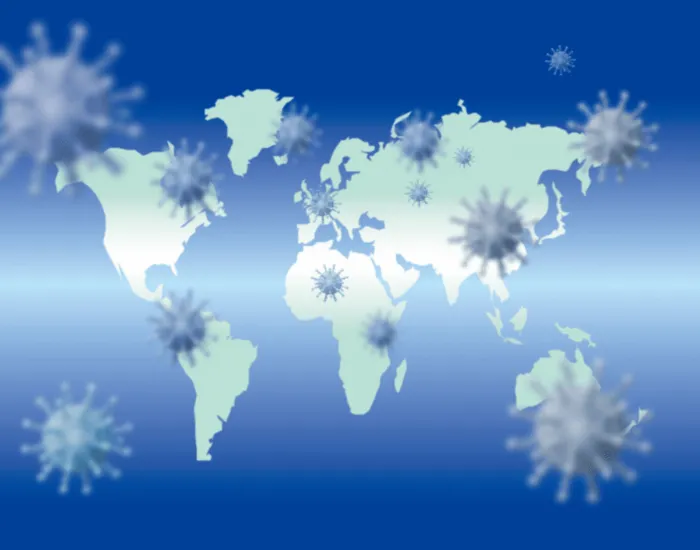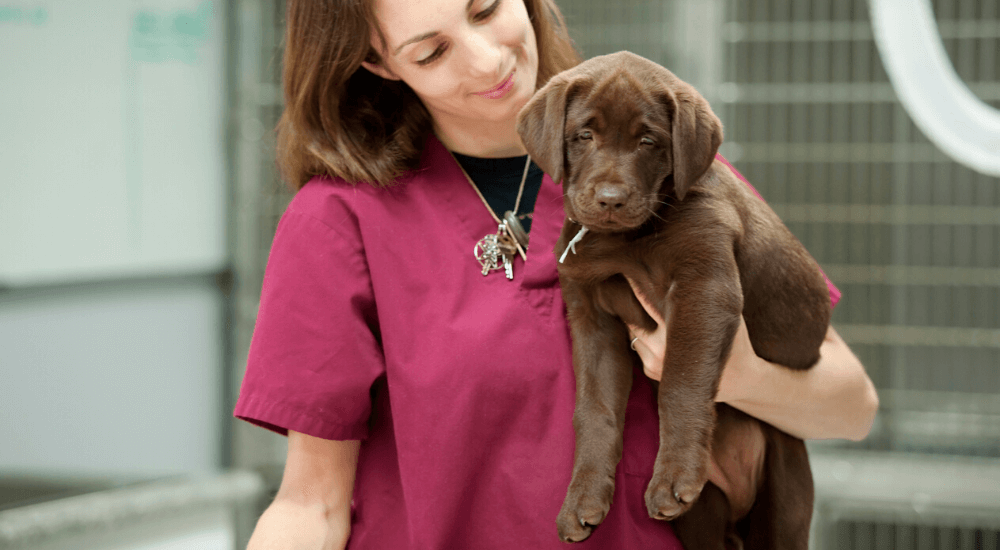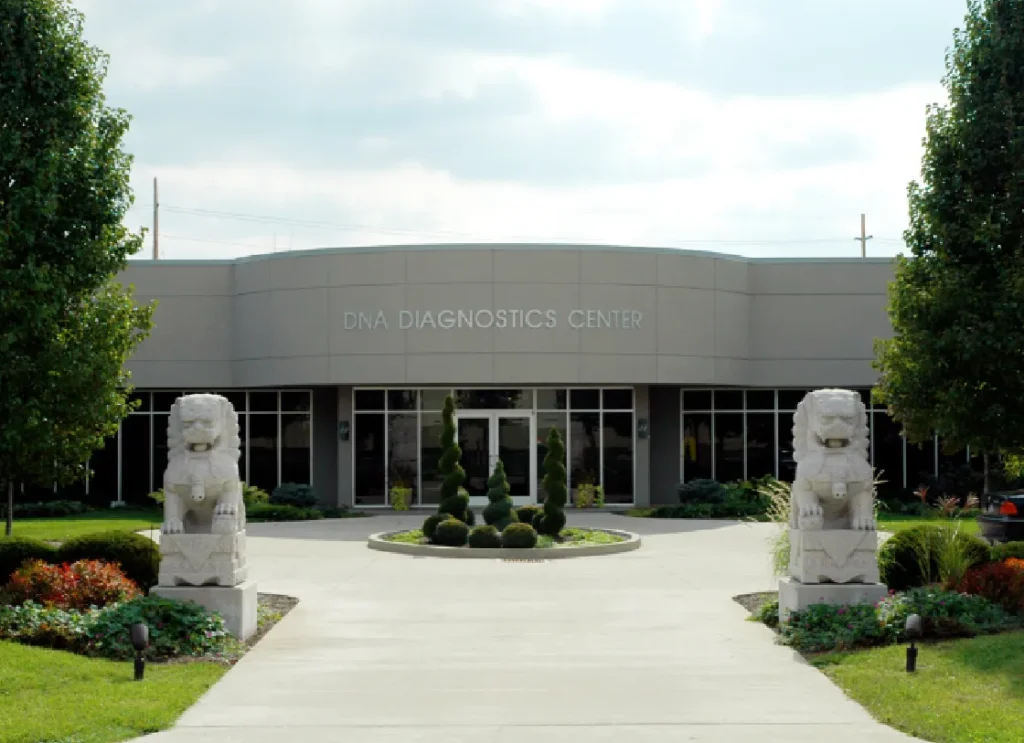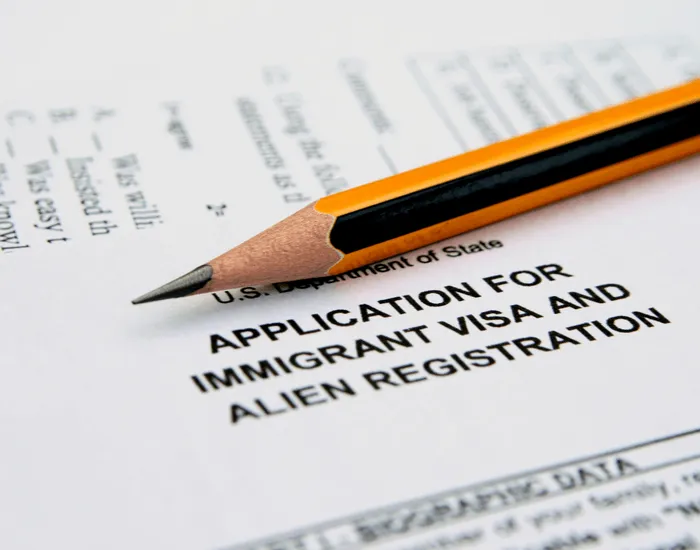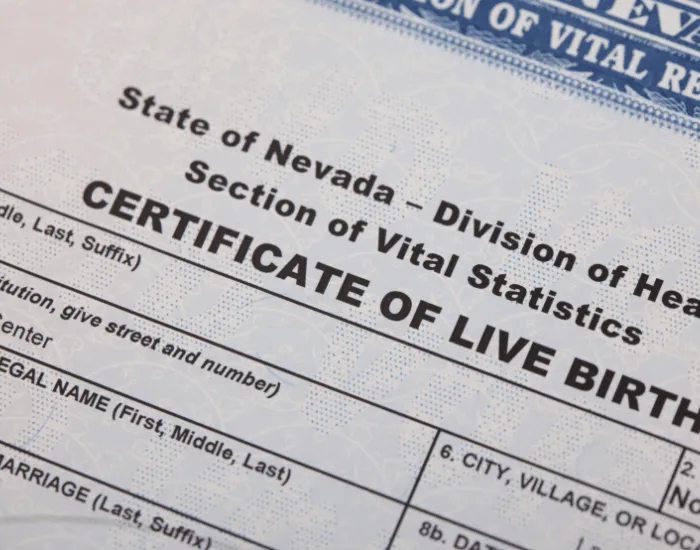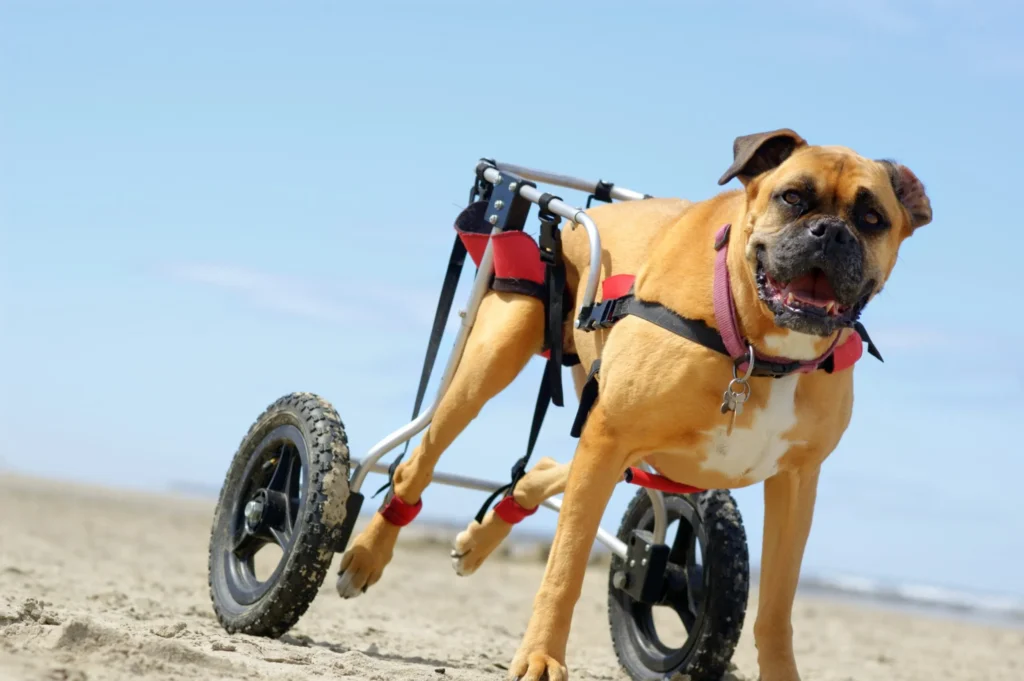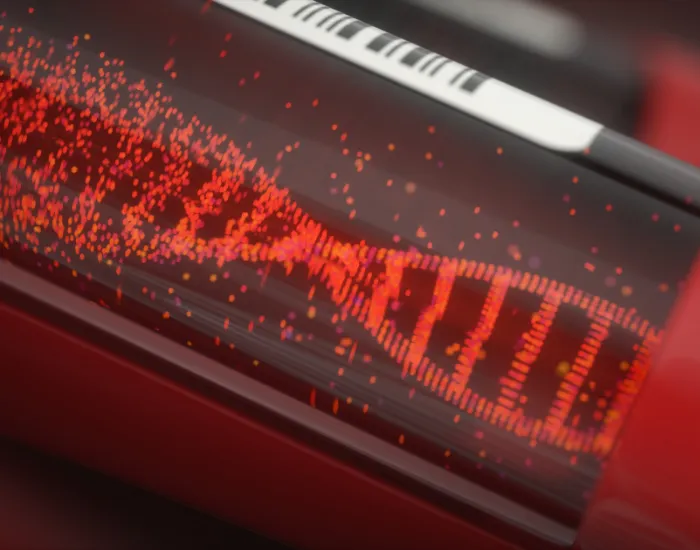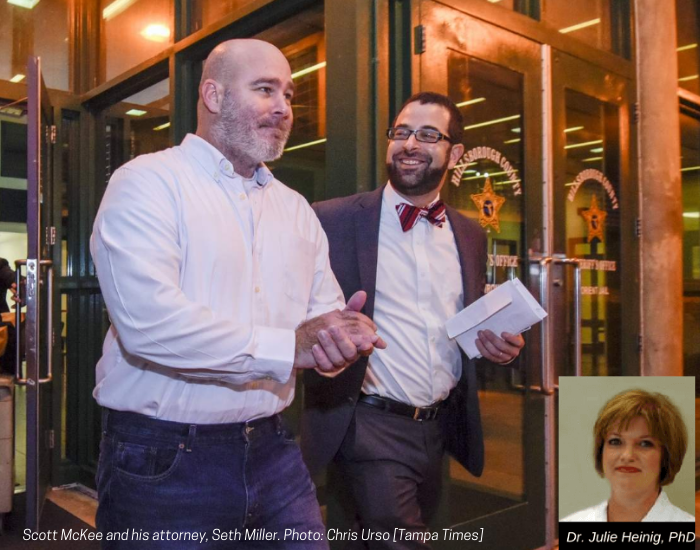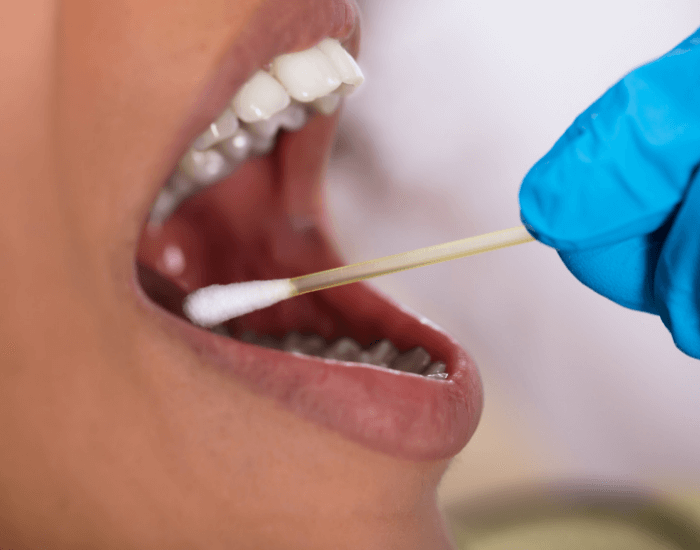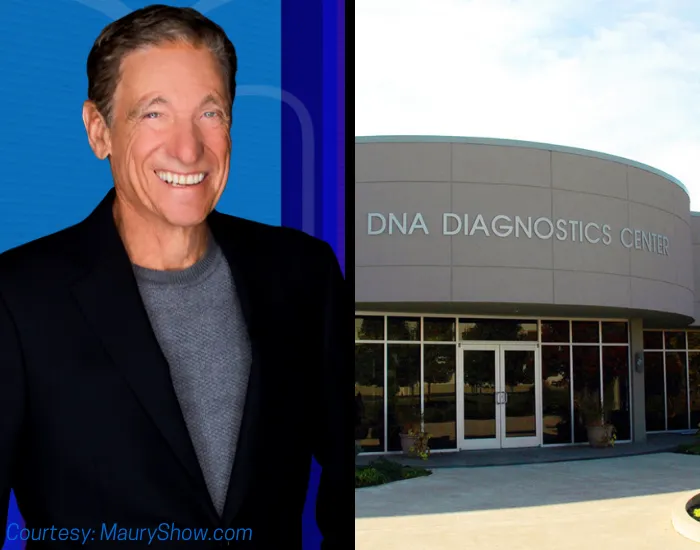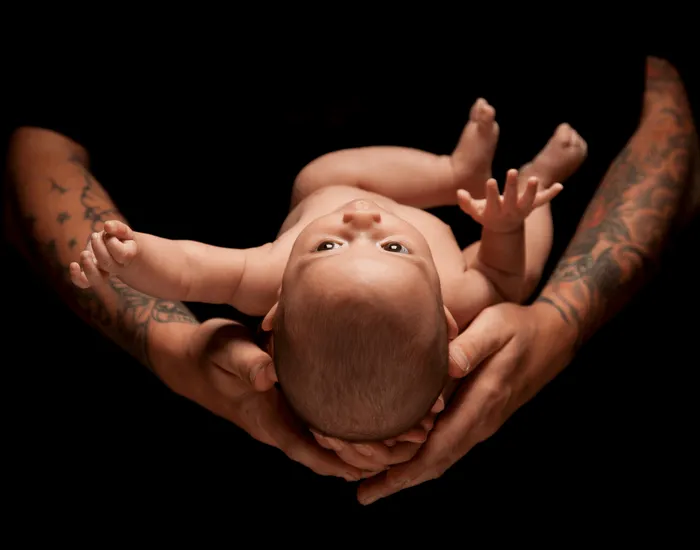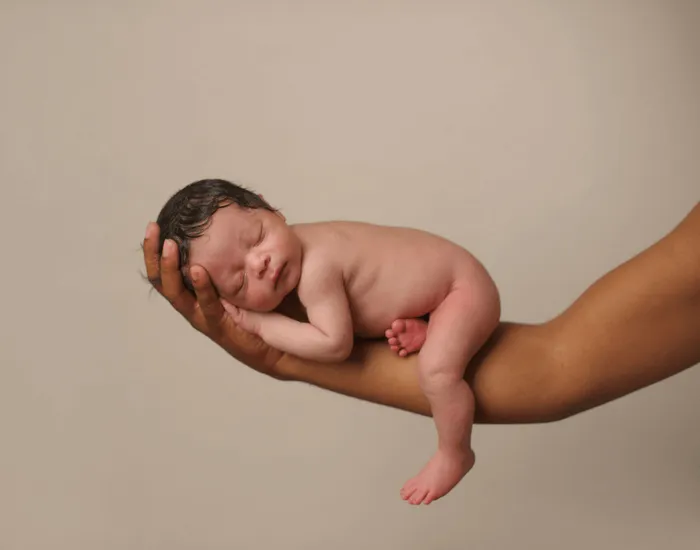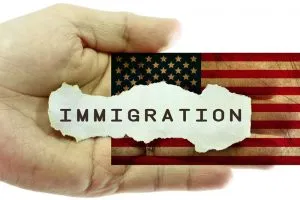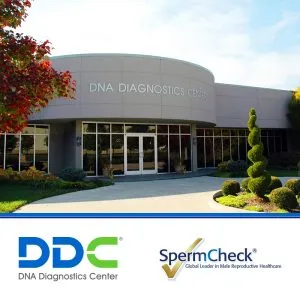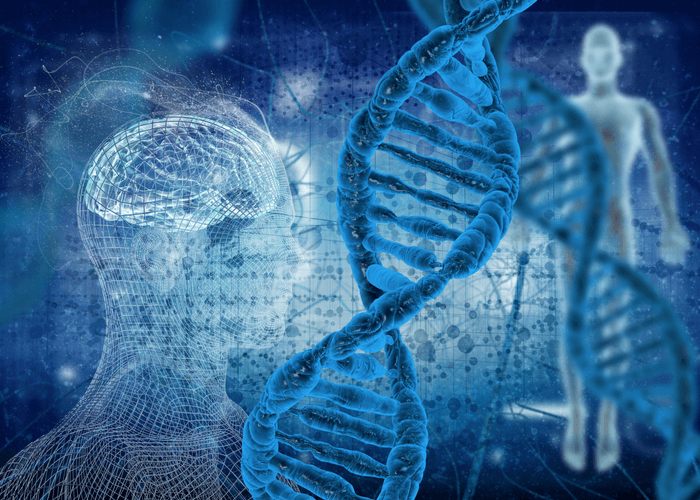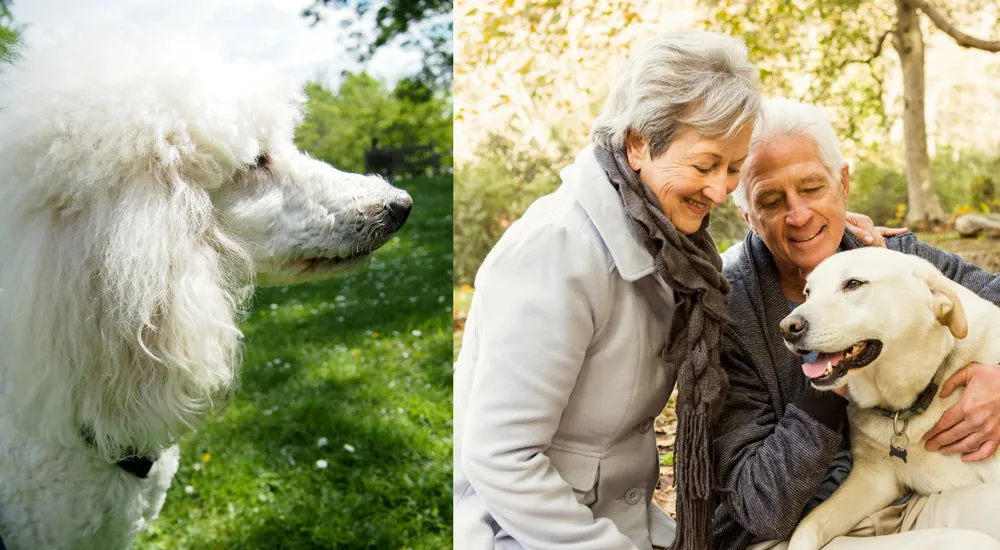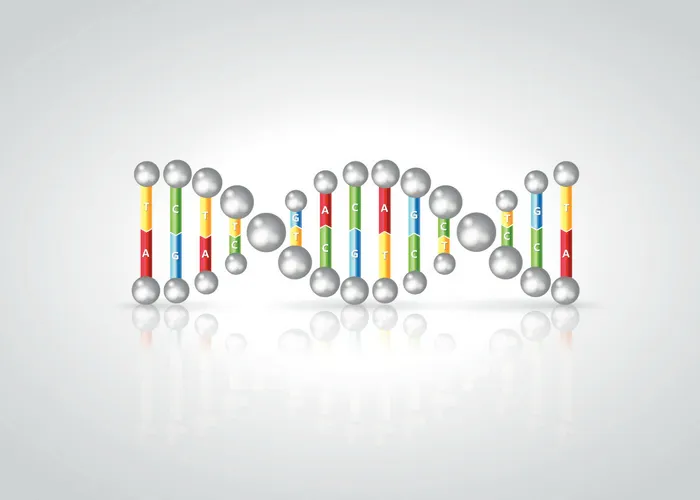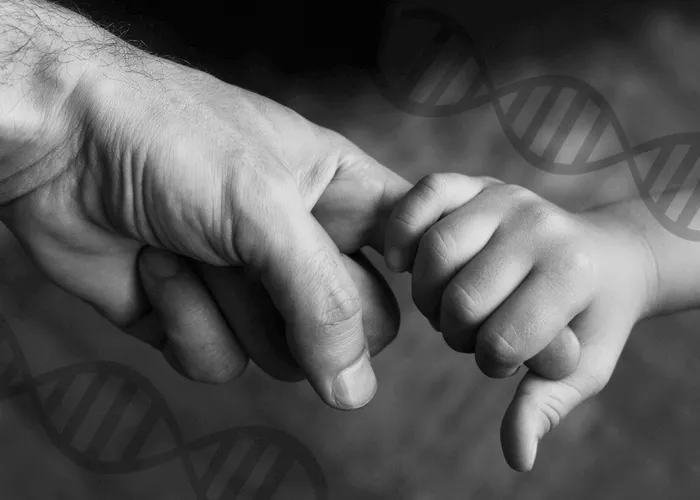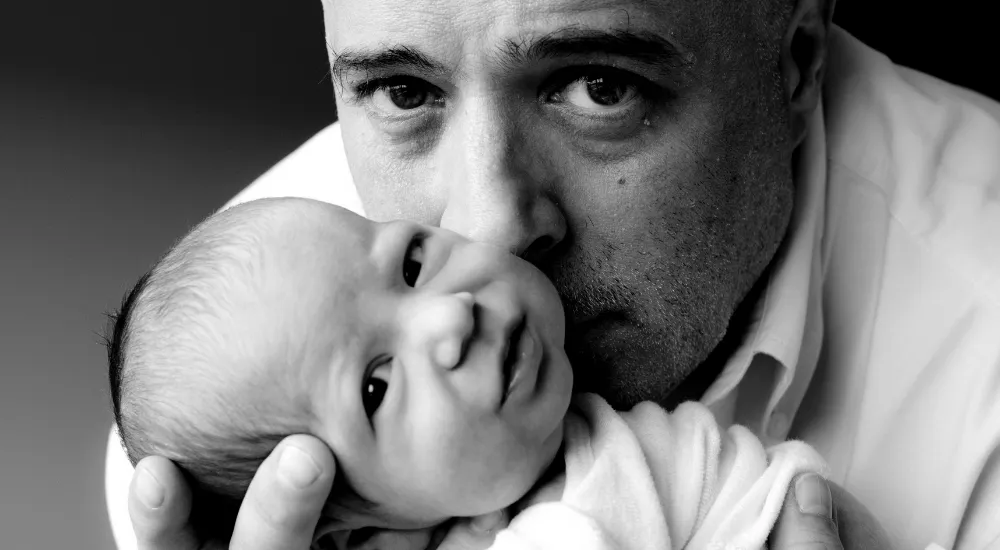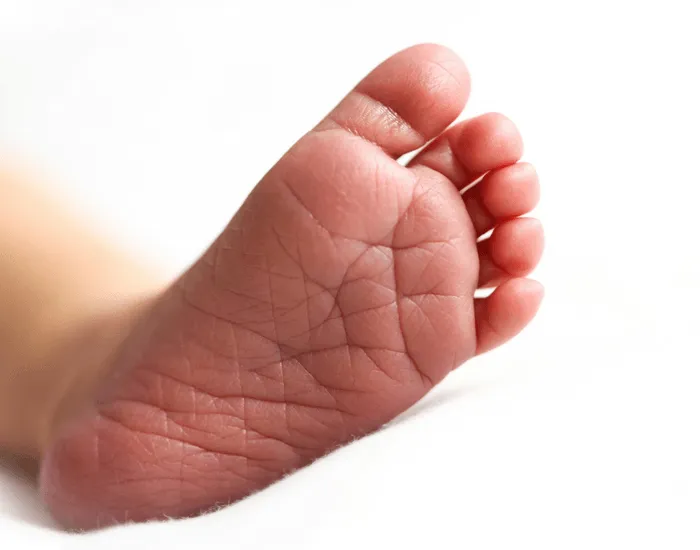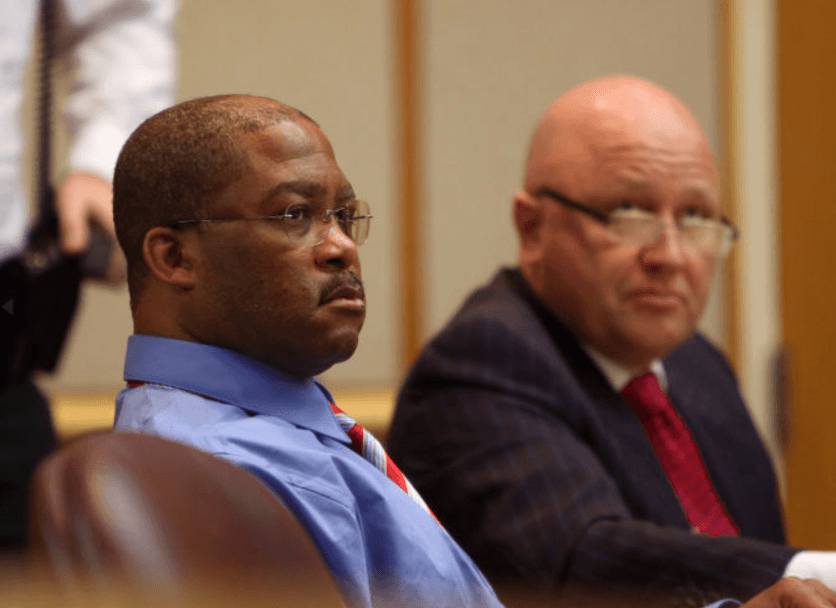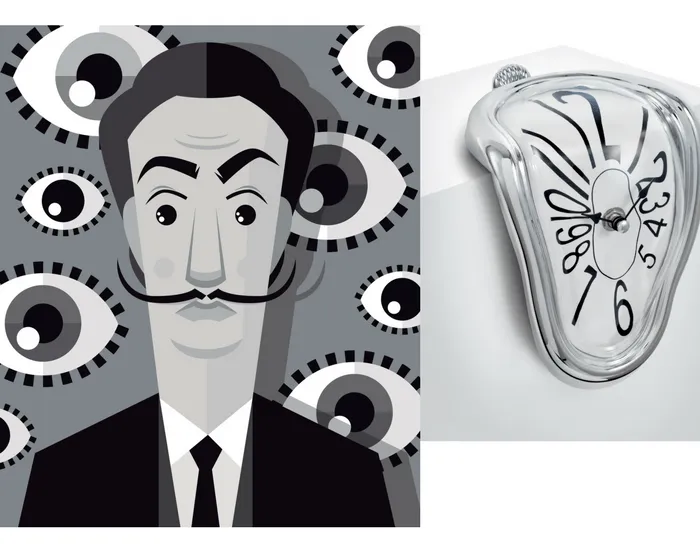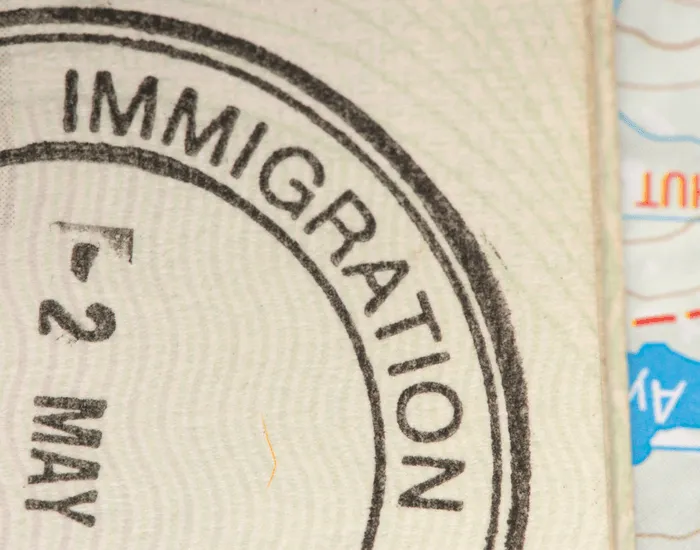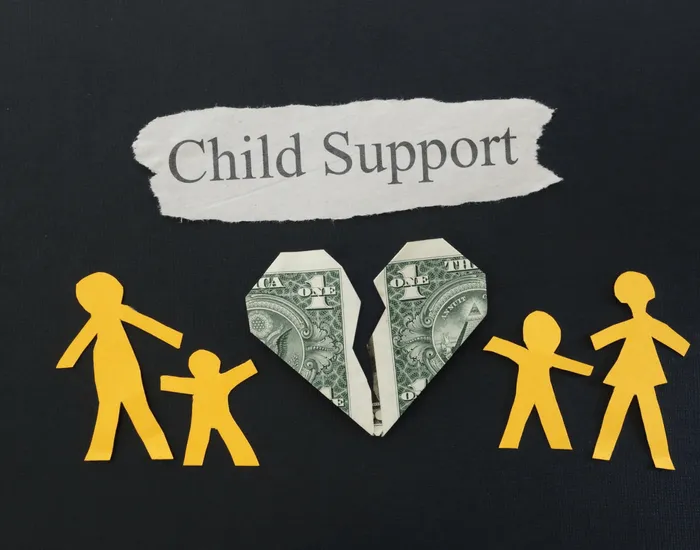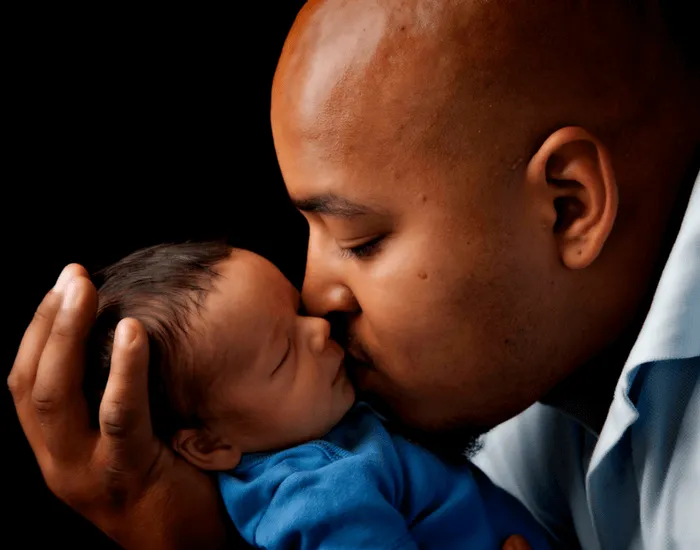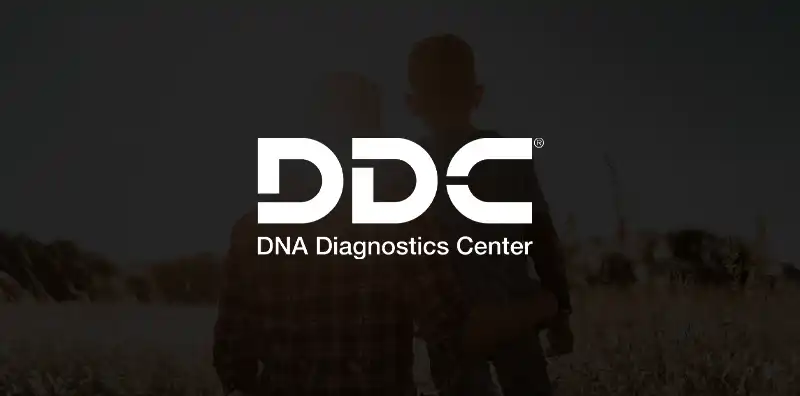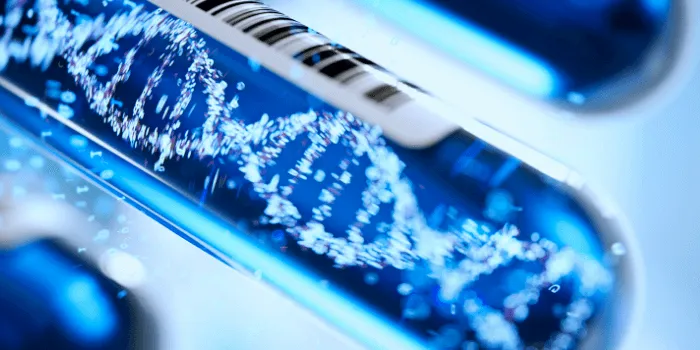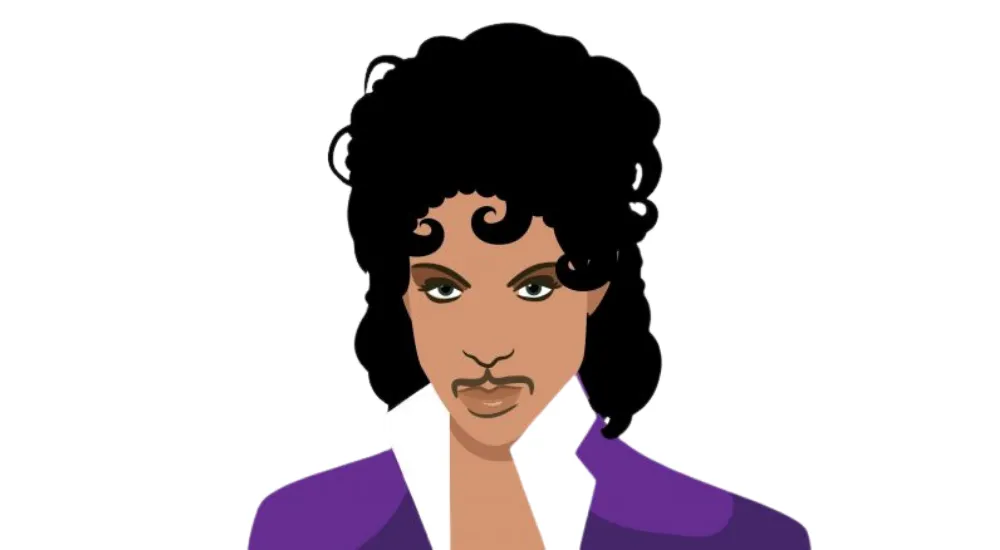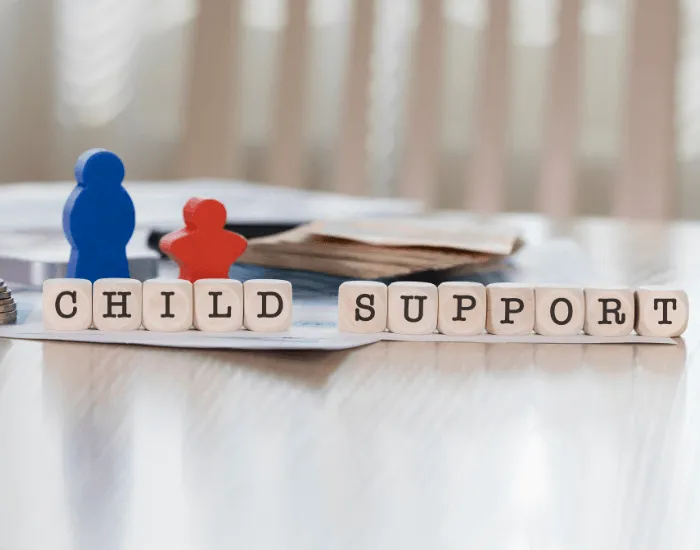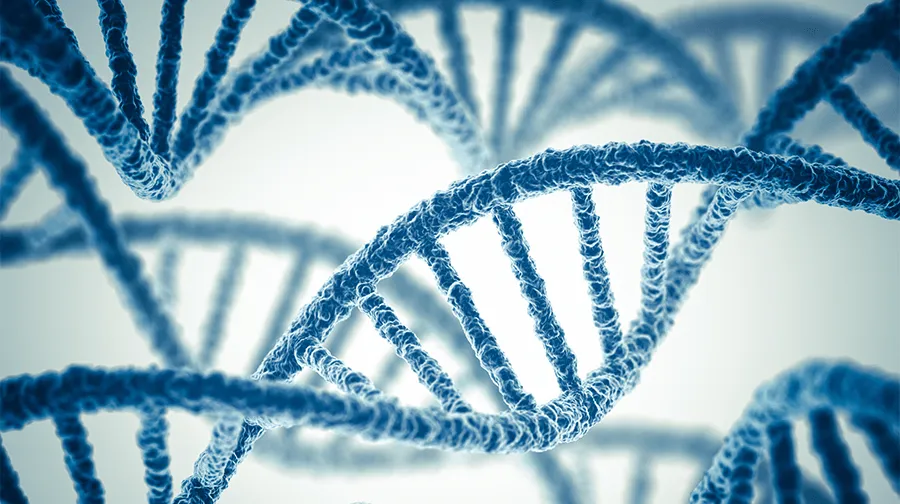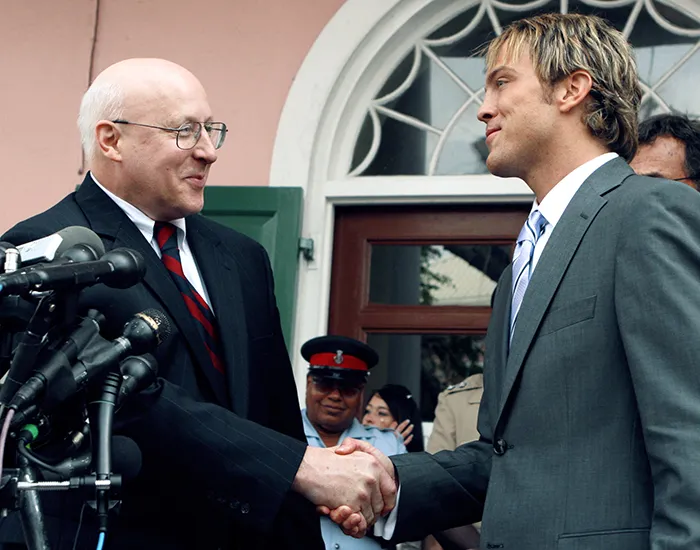Blog
How To Read Your Paternity DNA Test Results | DDC
November 19, 2024This detailed paternity test report contains scientific and legal terms to describe our highly-precise process.…
Gypsy Rose Blanchard’s DNA Test: How DNA Diagnostics Center Helped Resolve Paternity Questions During Pregnancy
November 6, 2024This detailed paternity test report contains scientific and legal terms to describe our highly-precise process.…
Proving Common Ancestral Lineage With DNA Testing
August 20, 2024This detailed paternity test report contains scientific and legal terms to describe our highly-precise process.…
Paternal vs. Maternal: The Basics of Biological Relationships
May 17, 2024This detailed paternity test report contains scientific and legal terms to describe our highly-precise process.…
How is Genetic Testing Done?
May 17, 2024This detailed paternity test report contains scientific and legal terms to describe our highly-precise process.…
Getting a DNA Test for Immigration? Learn More About the Process
April 29, 2024This detailed paternity test report contains scientific and legal terms to describe our highly-precise process.…
Top 5 Reasons to Get a Home Paternity Test
April 25, 2024This detailed paternity test report contains scientific and legal terms to describe our highly-precise process.…
How Much Does a Paternity Test Cost?
April 23, 2024This detailed paternity test report contains scientific and legal terms to describe our highly-precise process.…
A Paternity Test Says You’re Not the Father. Now What?
April 15, 2024This detailed paternity test report contains scientific and legal terms to describe our highly-precise process.…
Can I Get a Paternity Test While Pregnant?
March 31, 2024This detailed paternity test report contains scientific and legal terms to describe our highly-precise process.…
Legal Paternity Test vs. At-Home Paternity Test
March 10, 2024This detailed paternity test report contains scientific and legal terms to describe our highly-precise process.…
How Accurate is Ancestry DNA Testing?
January 7, 2024This detailed paternity test report contains scientific and legal terms to describe our highly-precise process.…
Blog
How To Read Your Paternity DNA Test Results | DDC
November 19, 2024This detailed paternity test report contains scientific and legal terms to describe our highly-precise process.…
Gypsy Rose Blanchard’s DNA Test: How DNA Diagnostics Center Helped Resolve Paternity Questions During Pregnancy
November 6, 2024This detailed paternity test report contains scientific and legal terms to describe our highly-precise process.…
Proving Common Ancestral Lineage With DNA Testing
August 20, 2024This detailed paternity test report contains scientific and legal terms to describe our highly-precise process.…
Paternal vs. Maternal: The Basics of Biological Relationships
May 17, 2024This detailed paternity test report contains scientific and legal terms to describe our highly-precise process.…
How is Genetic Testing Done?
May 17, 2024This detailed paternity test report contains scientific and legal terms to describe our highly-precise process.…
Getting a DNA Test for Immigration? Learn More About the Process
April 29, 2024This detailed paternity test report contains scientific and legal terms to describe our highly-precise process.…
Top 5 Reasons to Get a Home Paternity Test
April 25, 2024This detailed paternity test report contains scientific and legal terms to describe our highly-precise process.…
How Much Does a Paternity Test Cost?
April 23, 2024This detailed paternity test report contains scientific and legal terms to describe our highly-precise process.…
A Paternity Test Says You’re Not the Father. Now What?
April 15, 2024This detailed paternity test report contains scientific and legal terms to describe our highly-precise process.…
Can I Get a Paternity Test While Pregnant?
March 31, 2024This detailed paternity test report contains scientific and legal terms to describe our highly-precise process.…
Legal Paternity Test vs. At-Home Paternity Test
March 10, 2024This detailed paternity test report contains scientific and legal terms to describe our highly-precise process.…
How Accurate is Ancestry DNA Testing?
January 7, 2024This detailed paternity test report contains scientific and legal terms to describe our highly-precise process.…
Assessing Accuracy: How Often Are DNA Tests Wrong?
November 9, 2023This detailed paternity test report contains scientific and legal terms to describe our highly-precise process.…
The Hidden Costs of Free DNA Test Kits: Why You Should Think Twice
November 6, 2023This detailed paternity test report contains scientific and legal terms to describe our highly-precise process.…
Do Hospitals Do Paternity Tests at Birth?
November 6, 2023This detailed paternity test report contains scientific and legal terms to describe our highly-precise process.…
Peekaboo Gender Test Announces Groundbreaking Clinical Study Results: Accurate Fetal Sex Determination at Just 6 Weeks of Pregnancy
October 2, 2023This detailed paternity test report contains scientific and legal terms to describe our highly-precise process.…
Kelly and Sargon’s Story: Paternity Testing with DDC
September 22, 2023This detailed paternity test report contains scientific and legal terms to describe our highly-precise process.…
Getting a Paternity Test? Learn More About the Process
August 26, 2023This detailed paternity test report contains scientific and legal terms to describe our highly-precise process.…
Exploring the Many Benefits of Paternity Testing
August 18, 2023This detailed paternity test report contains scientific and legal terms to describe our highly-precise process.…
Updated Canada Immigration Test Requirements in 2024
August 13, 2023This detailed paternity test report contains scientific and legal terms to describe our highly-precise process.…
Myth or Reality: Can a DNA Test Show Drug Use?
August 10, 2023This detailed paternity test report contains scientific and legal terms to describe our highly-precise process.…
Do Nails Have DNA: How Does a Nail DNA Test Work?
August 7, 2023This detailed paternity test report contains scientific and legal terms to describe our highly-precise process.…
What Percentage of Men Have Children?
August 5, 2023This detailed paternity test report contains scientific and legal terms to describe our highly-precise process.…
Understanding Biological Relationships: A Detailed Look at the Chart of Blood Types
August 2, 2023This detailed paternity test report contains scientific and legal terms to describe our highly-precise process.…
Man’s Best Distant Relative: How Much DNA Do We Share with Dogs?
July 29, 2023This detailed paternity test report contains scientific and legal terms to describe our highly-precise process.…
What Genes Are Inherited From The Mother Only?
July 21, 2023This detailed paternity test report contains scientific and legal terms to describe our highly-precise process.…
Are All Humans Related? A Deep Dive into Our DNA
July 16, 2023This detailed paternity test report contains scientific and legal terms to describe our highly-precise process.…
Understanding Your Dog’s DNA with a Dog Breed Identifier Test
July 12, 2023This detailed paternity test report contains scientific and legal terms to describe our highly-precise process.…
Birth Certificate Name Change After Paternity Confirmation
July 10, 2023This detailed paternity test report contains scientific and legal terms to describe our highly-precise process.…
Can You Have Twins from Different Fathers?
July 6, 2023This detailed paternity test report contains scientific and legal terms to describe our highly-precise process.…
Is It Illegal to Hide a Pregnancy from the Father?
July 4, 2023This detailed paternity test report contains scientific and legal terms to describe our highly-precise process.…
DNA Testing After Death: Can You Get DNA from Ashes?
July 1, 2023This detailed paternity test report contains scientific and legal terms to describe our highly-precise process.…
DDC’s Certainty™ Prenatal Paternity Test: The Miller Moms’ Review
June 22, 2023This detailed paternity test report contains scientific and legal terms to describe our highly-precise process.…
The Gender Blood Test Options Explained
June 16, 2023This detailed paternity test report contains scientific and legal terms to describe our highly-precise process.…
Getting a NIPP Test? Learn More About the Process
June 12, 2023This detailed paternity test report contains scientific and legal terms to describe our highly-precise process.…
The Benefits of NIPP: Non-Invasive Prenatal Paternity Testing
June 10, 2023This detailed paternity test report contains scientific and legal terms to describe our highly-precise process.…
DNA Phenotyping: Is Forensic Analysis Leveling Up?
June 8, 2023This detailed paternity test report contains scientific and legal terms to describe our highly-precise process.…
How Does a Hair DNA Test Work?
June 7, 2023This detailed paternity test report contains scientific and legal terms to describe our highly-precise process.…
Who Invented DNA Testing and What Breakthrough Is Next?
June 3, 2023This detailed paternity test report contains scientific and legal terms to describe our highly-precise process.…
What Does Your Blood Type Say About Your Heritage?
June 1, 2023This detailed paternity test report contains scientific and legal terms to describe our highly-precise process.…
Can a Mother Refuse Paternity Testing? Understand Your Options
May 30, 2023This detailed paternity test report contains scientific and legal terms to describe our highly-precise process.…
Assessing Accuracy: How Often Are DNA Tests Wrong?
May 26, 2023This detailed paternity test report contains scientific and legal terms to describe our highly-precise process.…
Do Identical Twins Have the Same DNA?
May 26, 2023This detailed paternity test report contains scientific and legal terms to describe our highly-precise process.…
Understanding Legal and At-Home Paternity Test Results
May 25, 2023This detailed paternity test report contains scientific and legal terms to describe our highly-precise process.…
DNA Diagnostics Center (DDC) Announces the Launch of Peekaboo Click
April 24, 2023This detailed paternity test report contains scientific and legal terms to describe our highly-precise process.…
3 Ways to Find Out the Gender of Your Baby Early
February 26, 2023This detailed paternity test report contains scientific and legal terms to describe our highly-precise process.…
How to Tell the Gender of Your Baby
February 26, 2023This detailed paternity test report contains scientific and legal terms to describe our highly-precise process.…
Which Parent Determines the Gender of the Child?
February 26, 2023This detailed paternity test report contains scientific and legal terms to describe our highly-precise process.…
COVID-19 Impacting DDC – Now Through empowerDX
January 4, 2022This detailed paternity test report contains scientific and legal terms to describe our highly-precise process.…
How to Get a Paternity Test
November 30, 2021This detailed paternity test report contains scientific and legal terms to describe our highly-precise process.…
Using Laboratory DNA Testing to Confirm Ancestry
November 16, 2021This detailed paternity test report contains scientific and legal terms to describe our highly-precise process.…
Cheap Paternity Tests: 3 Things to Watch Out For
November 8, 2021This detailed paternity test report contains scientific and legal terms to describe our highly-precise process.…
Why Dog Breeders Should Keep in Touch with Past Customers
November 3, 2021This detailed paternity test report contains scientific and legal terms to describe our highly-precise process.…
Is an Online Paternity Test Accurate?
October 28, 2021This detailed paternity test report contains scientific and legal terms to describe our highly-precise process.…
Can a Paternity Test be “Wrong?”
October 21, 2021This detailed paternity test report contains scientific and legal terms to describe our highly-precise process.…
What You Need to Know about a Court-Ordered Paternity Test
October 13, 2021This detailed paternity test report contains scientific and legal terms to describe our highly-precise process.…
3 Cost-Effective Ways to Advertise your Dog-Breeding Business Organically
October 6, 2021This detailed paternity test report contains scientific and legal terms to describe our highly-precise process.…
Everything You Need to Know about a DNA Paternity Test
September 24, 2021This detailed paternity test report contains scientific and legal terms to describe our highly-precise process.…
Questions to Ask Puppy Buyers and What They May Ask You
September 13, 2021This detailed paternity test report contains scientific and legal terms to describe our highly-precise process.…
Heartwarming Story: An Adoptee Finds his Roots Through DNA Testing from DDC
August 24, 2021This detailed paternity test report contains scientific and legal terms to describe our highly-precise process.…
Legal DNA Testing vs. Immigration DNA Testing
July 16, 2021This detailed paternity test report contains scientific and legal terms to describe our highly-precise process.…
Understanding Different Sibling DNA Relationship Tests
June 18, 2021This detailed paternity test report contains scientific and legal terms to describe our highly-precise process.…
Why DNA Tests are Important for Immigration
May 14, 2021This detailed paternity test report contains scientific and legal terms to describe our highly-precise process.…
What is the Process for a Legal Paternity Test?
April 16, 2021This detailed paternity test report contains scientific and legal terms to describe our highly-precise process.…
Do Siblings Have the Same DNA?
March 19, 2021This detailed paternity test report contains scientific and legal terms to describe our highly-precise process.…
3 Crucial Reasons to Establish Paternity RIGHT AWAY
January 15, 2021This detailed paternity test report contains scientific and legal terms to describe our highly-precise process.…
How Can a DNA Test Help Me with my Search for my Ancestors?
January 1, 2021This detailed paternity test report contains scientific and legal terms to describe our highly-precise process.…
What You Need To Know About Immigration DNA Testing
December 4, 2020This detailed paternity test report contains scientific and legal terms to describe our highly-precise process.…
Debunking Paternity Test Myths
November 20, 2020This detailed paternity test report contains scientific and legal terms to describe our highly-precise process.…
How Can I Determine My Due Date?
November 6, 2020This detailed paternity test report contains scientific and legal terms to describe our highly-precise process.…
Paternity Test Privacy: Should I be Concerned?
October 30, 2020This detailed paternity test report contains scientific and legal terms to describe our highly-precise process.…
10 Reasons Someone Would Want a Sole Custody Agreement
October 23, 2020This detailed paternity test report contains scientific and legal terms to describe our highly-precise process.…
Paternity Test While Pregnant is Possible
October 16, 2020This detailed paternity test report contains scientific and legal terms to describe our highly-precise process.…
Unmarried Fathers’ Rights to Child Custody
October 9, 2020This detailed paternity test report contains scientific and legal terms to describe our highly-precise process.…
The American Pregnancy Association Endorses Peekaboo Baby Gender Early Detection Test
September 30, 2020This detailed paternity test report contains scientific and legal terms to describe our highly-precise process.…
DDC Announces Launch of Its Peekaboo Early Detection Gender DNA Test
September 17, 2020This detailed paternity test report contains scientific and legal terms to describe our highly-precise process.…
Everything You Need to Know about the Latest Baby Gender Prediction Test
September 16, 2020This detailed paternity test report contains scientific and legal terms to describe our highly-precise process.…
Is There Such a Thing as an Infidelity Gene?
September 4, 2020This detailed paternity test report contains scientific and legal terms to describe our highly-precise process.…
DNA Test Before the Baby is Born or While Pregnant?
August 28, 2020This detailed paternity test report contains scientific and legal terms to describe our highly-precise process.…
8 Mistakes You Don’t Want to Make When Healing from Infidelity
August 21, 2020This detailed paternity test report contains scientific and legal terms to describe our highly-precise process.…
What to Do When the Father Is Absent
August 14, 2020This detailed paternity test report contains scientific and legal terms to describe our highly-precise process.…
10 Reasons Why Someone Might Cheat
August 7, 2020This detailed paternity test report contains scientific and legal terms to describe our highly-precise process.…
AABB Accredited DNA Testing: Why It Matters
July 13, 2020This detailed paternity test report contains scientific and legal terms to describe our highly-precise process.…
COVID-19: There Is a Possibility I Could Be Sick. Can I Still Test For Paternity?
April 6, 2020This detailed paternity test report contains scientific and legal terms to describe our highly-precise process.…
What You Need to Know about CNM in Labrador Retrievers
March 26, 2020This detailed paternity test report contains scientific and legal terms to describe our highly-precise process.…
LATEST ANNOUNCEMENTS ABOUT COVID-19 (CORONAVIRUS) AND DDC
March 13, 2020This detailed paternity test report contains scientific and legal terms to describe our highly-precise process.…
Facts about HNPK in Dogs
March 2, 2020This detailed paternity test report contains scientific and legal terms to describe our highly-precise process.…
New Breeds at Westminster Dog Show 2020
January 20, 2020This detailed paternity test report contains scientific and legal terms to describe our highly-precise process.…
What is Copper Toxicosis in Dogs?
December 16, 2019This detailed paternity test report contains scientific and legal terms to describe our highly-precise process.…
DDC Forensics Team Provide Key Evidence for OIP Post-Conviction Case
November 22, 2019This detailed paternity test report contains scientific and legal terms to describe our highly-precise process.…
How Can My Paternity Test Samples Get Messed Up?
November 18, 2019This detailed paternity test report contains scientific and legal terms to describe our highly-precise process.…
Think You Don’t Need to Establish Legal Paternity? Think Again!
October 22, 2019This detailed paternity test report contains scientific and legal terms to describe our highly-precise process.…
How to Avoid These Common Immigration DNA Mistakes
October 16, 2019This detailed paternity test report contains scientific and legal terms to describe our highly-precise process.…
What You Need to Know about PRA-prcd in Dogs
October 1, 2019This detailed paternity test report contains scientific and legal terms to describe our highly-precise process.…
How Do I Change the Father on my Child’s Birth Certificate?
September 30, 2019This detailed paternity test report contains scientific and legal terms to describe our highly-precise process.…
What Is DM In Dogs?
September 1, 2019This detailed paternity test report contains scientific and legal terms to describe our highly-precise process.…
What You Need to Know about Coat Furnishings in Dogs
August 27, 2019This detailed paternity test report contains scientific and legal terms to describe our highly-precise process.…
DNA Diagnostics Center® Secures AABB® Accreditation for its Certainty™ Non-Invasive Prenatal Paternity Test
August 26, 2019This detailed paternity test report contains scientific and legal terms to describe our highly-precise process.…
What an Unwed Father Should Know about Establishing Paternity
August 1, 2019This detailed paternity test report contains scientific and legal terms to describe our highly-precise process.…
6 Best Tips for Traveling with Dogs
July 17, 2019This detailed paternity test report contains scientific and legal terms to describe our highly-precise process.…
What You Need to Know about Heartworm and Dogs
April 18, 2019This detailed paternity test report contains scientific and legal terms to describe our highly-precise process.…
The Problem with Transfusions, Transplants, and Paternity Tests
April 10, 2019This detailed paternity test report contains scientific and legal terms to describe our highly-precise process.…
What is Bully Whippet Syndrome?
April 8, 2019This detailed paternity test report contains scientific and legal terms to describe our highly-precise process.…
Coping with the Death of your Dog
March 4, 2019This detailed paternity test report contains scientific and legal terms to describe our highly-precise process.…
What You Need to Know about Cystinuria in Dogs
February 18, 2019This detailed paternity test report contains scientific and legal terms to describe our highly-precise process.…
New Breeds at Westminster Dog Show 2019
February 5, 2019This detailed paternity test report contains scientific and legal terms to describe our highly-precise process.…
DNA Diagnostics Center®, an Established Global Leader in Diagnostic and Genetic Testing, Names Scott Cramer President and Chief Executive Officer
February 5, 2019This detailed paternity test report contains scientific and legal terms to describe our highly-precise process.…
3 Ways to Save on Taxes and How a Legal Paternity Test Can Help
February 5, 2019This detailed paternity test report contains scientific and legal terms to describe our highly-precise process.…
DDC Forensic DNA Expert Crucial in Florida Court’s Decision to Exonerate Dean McKee
February 1, 2019This detailed paternity test report contains scientific and legal terms to describe our highly-precise process.…
DENIED. Can Someone Refuse a Paternity Test?
January 8, 2019This detailed paternity test report contains scientific and legal terms to describe our highly-precise process.…
What Breed Is My Dog? 3 Tips for Solving your Furry Mystery
December 4, 2018This detailed paternity test report contains scientific and legal terms to describe our highly-precise process.…
What Comes in a Home DNA Test Kit?
November 29, 2018This detailed paternity test report contains scientific and legal terms to describe our highly-precise process.…
Facts about EIC in Dogs
November 6, 2018This detailed paternity test report contains scientific and legal terms to describe our highly-precise process.…
What is DNA NPE and How Can Facebook Help?
October 17, 2018This detailed paternity test report contains scientific and legal terms to describe our highly-precise process.…
Top 3 Celebrity Paternity Cases of 2018
October 2, 2018This detailed paternity test report contains scientific and legal terms to describe our highly-precise process.…
Avoiding Delays in the Immigration Process
September 27, 2018This detailed paternity test report contains scientific and legal terms to describe our highly-precise process.…
3 Best Tips for Leaving Your Dog Home Alone
September 26, 2018This detailed paternity test report contains scientific and legal terms to describe our highly-precise process.…
DNA Swabbing vs. Blood Samples in DNA Testing
September 13, 2018This detailed paternity test report contains scientific and legal terms to describe our highly-precise process.…
Maury and DDC: Partners in Paternity TV for 20 Seasons
September 6, 2018This detailed paternity test report contains scientific and legal terms to describe our highly-precise process.…
What Breed is my Dog? You May Have It All Wrong.
August 29, 2018This detailed paternity test report contains scientific and legal terms to describe our highly-precise process.…
Can a DNA Paternity Test Be Done Without the Father?
August 21, 2018This detailed paternity test report contains scientific and legal terms to describe our highly-precise process.…
How Accurate Are Home DNA Paternity Tests?
August 13, 2018This detailed paternity test report contains scientific and legal terms to describe our highly-precise process.…
When Two Possible Fathers are Brothers or Related
July 30, 2018This detailed paternity test report contains scientific and legal terms to describe our highly-precise process.…
Where Can I Get a Paternity Test?
July 16, 2018This detailed paternity test report contains scientific and legal terms to describe our highly-precise process.…
How Soon Can You DNA Test a Baby After Birth?
July 12, 2018This detailed paternity test report contains scientific and legal terms to describe our highly-precise process.…
How Much Does a DNA Test Cost?
June 26, 2018This detailed paternity test report contains scientific and legal terms to describe our highly-precise process.…
DDC Ready to Provide Expedited Legally-Binding Immigration DNA Testing for Border Families
June 22, 2018This detailed paternity test report contains scientific and legal terms to describe our highly-precise process.…
Where Can I Get a DNA Paternity Test?
June 19, 2018This detailed paternity test report contains scientific and legal terms to describe our highly-precise process.…
How Much Does a Dog DNA Test Cost?
June 5, 2018This detailed paternity test report contains scientific and legal terms to describe our highly-precise process.…
How Long Does it Take to Get DNA Paternity Test Results?
May 22, 2018This detailed paternity test report contains scientific and legal terms to describe our highly-precise process.…
Can I Do a Sibling DNA Test for Immigration?
May 9, 2018This detailed paternity test report contains scientific and legal terms to describe our highly-precise process.…
DNA Diagnostics Center® Announces Acquisition of ContraVac, Inc.
May 3, 2018This detailed paternity test report contains scientific and legal terms to describe our highly-precise process.…
5 Must-Do Safety Tips for a Dog-Friendly Easter
March 28, 2018This detailed paternity test report contains scientific and legal terms to describe our highly-precise process.…
Twins DNA Testing: Identical or Fraternal?
March 27, 2018This detailed paternity test report contains scientific and legal terms to describe our highly-precise process.…
Grandparent DNA Test: What You Need to Know
March 12, 2018This detailed paternity test report contains scientific and legal terms to describe our highly-precise process.…
DNA Double Helix: Why It Still Matters
February 21, 2018This detailed paternity test report contains scientific and legal terms to describe our highly-precise process.…
Dog DNA Tests: 4 Superstar Tips for Submitting Samples
February 20, 2018This detailed paternity test report contains scientific and legal terms to describe our highly-precise process.…
Dog DNA Testing: Is my Puppy’s Personality Influenced by its DNA?
February 19, 2018This detailed paternity test report contains scientific and legal terms to describe our highly-precise process.…
What Paternity Testing Can and Can’t Tell You
February 5, 2018This detailed paternity test report contains scientific and legal terms to describe our highly-precise process.…
Paternity Fraud: Your Top 3 Questions Answered
February 2, 2018This detailed paternity test report contains scientific and legal terms to describe our highly-precise process.…
10 Helpful DNA Facts for Everyone
January 18, 2018This detailed paternity test report contains scientific and legal terms to describe our highly-precise process.…
Prenatal Paternity Testing: 5 Myths Debunked
December 28, 2017This detailed paternity test report contains scientific and legal terms to describe our highly-precise process.…
Dog DNA Testing: When and How Can I Test Newborn Puppies?
December 5, 2017This detailed paternity test report contains scientific and legal terms to describe our highly-precise process.…
DNA Science: Paternity and Family Relationship Testing
November 7, 2017This detailed paternity test report contains scientific and legal terms to describe our highly-precise process.…
Top 5 Questions about Legal DNA Testing
October 25, 2017This detailed paternity test report contains scientific and legal terms to describe our highly-precise process.…
Your Immigration DNA Test: Must-Know Basics
October 18, 2017This detailed paternity test report contains scientific and legal terms to describe our highly-precise process.…
Top 10 Questions about Prenatal Paternity Tests
September 26, 2017This detailed paternity test report contains scientific and legal terms to describe our highly-precise process.…
Breeding your Dog: 5 Things to Consider
September 25, 2017This detailed paternity test report contains scientific and legal terms to describe our highly-precise process.…
Babies Switched at Birth: Should You be Concerned? | DDC
August 29, 2017This detailed paternity test report contains scientific and legal terms to describe our highly-precise process.…
Prenatal Paternity Tests Can Help Reduce Pregnancy Stress
August 10, 2017This detailed paternity test report contains scientific and legal terms to describe our highly-precise process.…
Dog DNA Testing: What is Collie Eye Anomaly?
July 24, 2017This detailed paternity test report contains scientific and legal terms to describe our highly-precise process.…
Forensic DNA Testing by DDC Helps Vacate Conviction
July 21, 2017This detailed paternity test report contains scientific and legal terms to describe our highly-precise process.…
Digging up Dad: Dali and Celebrity Paternity Testing from the Grave
June 28, 2017This detailed paternity test report contains scientific and legal terms to describe our highly-precise process.…
Home Paternity Test: Your Top 7 Questions Answered
June 23, 2017This detailed paternity test report contains scientific and legal terms to describe our highly-precise process.…
What is von Willebrand’s Disease in Dogs?
June 21, 2017This detailed paternity test report contains scientific and legal terms to describe our highly-precise process.…
Raw Food Diet for Dogs: Pros and Cons
June 6, 2017This detailed paternity test report contains scientific and legal terms to describe our highly-precise process.…
Immigration DNA Testing: Top 5 Questions Answered
May 30, 2017This detailed paternity test report contains scientific and legal terms to describe our highly-precise process.…
Paternity Testing and Child Support
May 26, 2017This detailed paternity test report contains scientific and legal terms to describe our highly-precise process.…
Paternity Test NYC: How-to’s for New Yorkers
May 11, 2017This detailed paternity test report contains scientific and legal terms to describe our highly-precise process.…
Hidden DNA Paternity Test Cost—Buyer Beware!
May 2, 2017This detailed paternity test report contains scientific and legal terms to describe our highly-precise process.…
DNA Screening in Animals: Options for Dogs
April 18, 2017This detailed paternity test report contains scientific and legal terms to describe our highly-precise process.…
DNA Testing for Immigration: Requirements and Recommendations
April 17, 2017This detailed paternity test report contains scientific and legal terms to describe our highly-precise process.…
5 Reasons You Might Need a Legal Paternity Test
April 11, 2017This detailed paternity test report contains scientific and legal terms to describe our highly-precise process.…
My Paternity Test: Why Should I Choose DDC?
April 10, 2017This detailed paternity test report contains scientific and legal terms to describe our highly-precise process.…
Do I Need a Doctor’s or Court Order?
March 30, 2017This detailed paternity test report contains scientific and legal terms to describe our highly-precise process.…
DNA Testing for Immigration: 5 Steps
March 21, 2017This detailed paternity test report contains scientific and legal terms to describe our highly-precise process.…
Can I Do a DNA Paternity Test With the Father and Child Only?
March 10, 2017This detailed paternity test report contains scientific and legal terms to describe our highly-precise process.…
What Do You Need For a DNA Paternity Test?
March 10, 2017This detailed paternity test report contains scientific and legal terms to describe our highly-precise process.…
New GPS Origins™ DNA Test Pinpoints your Ancestry!
December 12, 2016This detailed paternity test report contains scientific and legal terms to describe our highly-precise process.…
DNA Diagnostics Center® Announces Acquisition of IDENTIGENE®, LLC
December 2, 2016This detailed paternity test report contains scientific and legal terms to describe our highly-precise process.…
How DNA Testing Has Changed
September 19, 2016This detailed paternity test report contains scientific and legal terms to describe our highly-precise process.…
How Can I Predict the Coat Color of Puppies?
August 24, 2016This detailed paternity test report contains scientific and legal terms to describe our highly-precise process.…
How Long Does Immigration Testing Take?
August 22, 2016This detailed paternity test report contains scientific and legal terms to describe our highly-precise process.…
What Do I Do with the Results of the DNA Test?
July 7, 2016This detailed paternity test report contains scientific and legal terms to describe our highly-precise process.…
Five Fun Facts about DNA
June 13, 2016This detailed paternity test report contains scientific and legal terms to describe our highly-precise process.…
DNA Diagnostics Center Announces Robert Bosley as Executive Vice President and Chief Financial Officer of Company
June 8, 2016This detailed paternity test report contains scientific and legal terms to describe our highly-precise process.…
Can a DNA Paternity Test be Done Without the Father Knowing?
May 22, 2016This detailed paternity test report contains scientific and legal terms to describe our highly-precise process.…
Prince’s DNA & Paternity Testing
May 10, 2016This detailed paternity test report contains scientific and legal terms to describe our highly-precise process.…
Identification Techniques for Preventing Infant Mix-Ups
May 3, 2016This detailed paternity test report contains scientific and legal terms to describe our highly-precise process.…
Federal Court Upholds DNA Diagnostics Center’s Use of “Ancestry” for DNA Testing and Rules that Ancestry.com Caused Marketplace Confusion
May 3, 2016This detailed paternity test report contains scientific and legal terms to describe our highly-precise process.…
Paternity Testing: Twins With Different Fathers
April 16, 2016This detailed paternity test report contains scientific and legal terms to describe our highly-precise process.…
The Polymerase Chain Reaction
March 30, 2016This detailed paternity test report contains scientific and legal terms to describe our highly-precise process.…
DNA Diagnostics Center Names Connie Hallquist President and Chief Executive Officer
March 29, 2016This detailed paternity test report contains scientific and legal terms to describe our highly-precise process.…
DNA Diagnostics Center Announces Acquisition of All About Truth DNA Services
March 22, 2016This detailed paternity test report contains scientific and legal terms to describe our highly-precise process.…
How To: Get a DNA Paternity Test (Video)
February 27, 2016This detailed paternity test report contains scientific and legal terms to describe our highly-precise process.…
Recombinant DNA Technology: Creating Solutions for Health & Nutrition
January 30, 2016This detailed paternity test report contains scientific and legal terms to describe our highly-precise process.…
Rapist Found 20 Years Later by DNA Test
January 20, 2016This detailed paternity test report contains scientific and legal terms to describe our highly-precise process.…
Lauren Lake & Paternity Court
December 21, 2015This detailed paternity test report contains scientific and legal terms to describe our highly-precise process.…
Tom Jones Getting DNA Test to See If He Has Black Heritage
November 2, 2015This detailed paternity test report contains scientific and legal terms to describe our highly-precise process.…
DNA Diagnostics Center Discovers Rare Chimera Paternity Case
October 27, 2015This detailed paternity test report contains scientific and legal terms to describe our highly-precise process.…
“It’s in our DNA!”
October 19, 2015This detailed paternity test report contains scientific and legal terms to describe our highly-precise process.…
Smart Diets Based on DNA Testing
October 13, 2015This detailed paternity test report contains scientific and legal terms to describe our highly-precise process.…
Understanding DNA In 10 Minutes
October 5, 2015This detailed paternity test report contains scientific and legal terms to describe our highly-precise process.…
Celebrity Paternity Testing Around the World
September 27, 2015This detailed paternity test report contains scientific and legal terms to describe our highly-precise process.…
New Study Uses DNA Testing for Ancient Ancestry
September 14, 2015This detailed paternity test report contains scientific and legal terms to describe our highly-precise process.…
Are Mouth Swabs Effective for Collecting DNA?
August 31, 2015This detailed paternity test report contains scientific and legal terms to describe our highly-precise process.…
DNA Paternity Testing in the Animal Kingdom
August 4, 2015This detailed paternity test report contains scientific and legal terms to describe our highly-precise process.…
Why Fathers Should Consider a Legal DNA Paternity Test
June 15, 2015This detailed paternity test report contains scientific and legal terms to describe our highly-precise process.…
Genetic Test to Find History of Viruses
June 11, 2015This detailed paternity test report contains scientific and legal terms to describe our highly-precise process.…
Child Support and Paternity Testing
April 29, 2015This detailed paternity test report contains scientific and legal terms to describe our highly-precise process.…
DNA Testing: Forensic Paternity Test
February 18, 2015This detailed paternity test report contains scientific and legal terms to describe our highly-precise process.…
DNA DIAGNOSTICS CENTER, The World’s Largest Provider of DNA Paternity Tests, Recently Launched DDC DIRECT CONNECT, A New Interactive Website for its Government Contracted Customers
November 11, 2014This detailed paternity test report contains scientific and legal terms to describe our highly-precise process.…
What Makes a Legal DNA Paternity Test Court Admissible?
October 2, 2014This detailed paternity test report contains scientific and legal terms to describe our highly-precise process.…
Genetic Engineering 101
September 30, 2014This detailed paternity test report contains scientific and legal terms to describe our highly-precise process.…
DNA Diagnostics Center, The World’s Largest Provider of DNA Paternity Tests, Launches a New Home Paternity Sample Collection Kit In Retail stores
September 30, 2014This detailed paternity test report contains scientific and legal terms to describe our highly-precise process.…
How DNA Damage Impacts Your Body’s Ability to Heal
September 28, 2014This detailed paternity test report contains scientific and legal terms to describe our highly-precise process.…
What is Mitochondrial DNA (mtDNA) and How is It Used?
September 26, 2014This detailed paternity test report contains scientific and legal terms to describe our highly-precise process.…
Fetal DNA Testing – New Parameters
September 23, 2014This detailed paternity test report contains scientific and legal terms to describe our highly-precise process.…
What is Forensic DNA Testing?
September 22, 2014This detailed paternity test report contains scientific and legal terms to describe our highly-precise process.…
Can I Take a DNA Test at Home?
August 17, 2014This detailed paternity test report contains scientific and legal terms to describe our highly-precise process.…
DNA Banking: Genetic Storage and Security for the Future
August 12, 2014This detailed paternity test report contains scientific and legal terms to describe our highly-precise process.…
How Does DNA Replication Work?
August 2, 2014This detailed paternity test report contains scientific and legal terms to describe our highly-precise process.…
Do I Need a DNA Paternity Test for Child Support?
July 31, 2014This detailed paternity test report contains scientific and legal terms to describe our highly-precise process.…
Identical Twins vs Fraternal Twins: Genetics Difference
July 30, 2014This detailed paternity test report contains scientific and legal terms to describe our highly-precise process.…
6 Ways DNA Profiling Matters
July 17, 2014This detailed paternity test report contains scientific and legal terms to describe our highly-precise process.…
Prenatal Paternity Testing: How Early is Possible?
July 14, 2014This detailed paternity test report contains scientific and legal terms to describe our highly-precise process.…
Understanding the Benefits & Uses of DNA Paternity Testing
July 10, 2014This detailed paternity test report contains scientific and legal terms to describe our highly-precise process.…
Top 5 Reasons to Use a Paternity Test
June 26, 2014This detailed paternity test report contains scientific and legal terms to describe our highly-precise process.…
DNA Testing in Different States
June 20, 2014This detailed paternity test report contains scientific and legal terms to describe our highly-precise process.…
DNA Testing Around the World
June 11, 2014This detailed paternity test report contains scientific and legal terms to describe our highly-precise process.…
Using DNA Paternity Tests to Determine Infidelity
May 29, 2014This detailed paternity test report contains scientific and legal terms to describe our highly-precise process.…
Why Genetic Traits Matter in DNA Testing
May 27, 2014This detailed paternity test report contains scientific and legal terms to describe our highly-precise process.…
Risks and Benefits of DNA Testing During Pregnancy
May 23, 2014This detailed paternity test report contains scientific and legal terms to describe our highly-precise process.…
DNA DIAGNOSTICS CENTER (DDC), One of the World’s Largest Commercial DNA Testing Labs Announces Executive Promotions At the Company’s US and UK Headquarters
April 21, 2014This detailed paternity test report contains scientific and legal terms to describe our highly-precise process.…
DNA Diagnostics Center Forensics Team Help to Prove Dewey Jones’ Innocence of 20-Year Murder Charge
February 6, 2014This detailed paternity test report contains scientific and legal terms to describe our highly-precise process.…
Paternity Acknowledgement – What You Need to Know!
December 31, 2013This detailed paternity test report contains scientific and legal terms to describe our highly-precise process.…
Forensics proved man’s innocence after being imprisoned |DDC
November 26, 2013This detailed paternity test report contains scientific and legal terms to describe our highly-precise process.…
DDC rises identification power of DNA test by more than 500%
October 21, 2013This detailed paternity test report contains scientific and legal terms to describe our highly-precise process.…
How Can a DNA Paternity Test Determine if Frank Sinatra or Woody Allen is the Father of Ronan Farrow?
October 11, 2013This detailed paternity test report contains scientific and legal terms to describe our highly-precise process.…
Chain of Custody Paternity Testing And Everything You Need To Know About Them
August 14, 2013This detailed paternity test report contains scientific and legal terms to describe our highly-precise process.…
DNA Paternity Tests: Is the Quality Different Between a Legal and Non-Legal Paternity Test?
August 1, 2013This detailed paternity test report contains scientific and legal terms to describe our highly-precise process.…
I’m Pregnant. Who Is The Father? DNA Paternity Testing
June 19, 2013This detailed paternity test report contains scientific and legal terms to describe our highly-precise process.…
DNA Identification: The New Fingerprint
June 17, 2013This detailed paternity test report contains scientific and legal terms to describe our highly-precise process.…
I Need a Paternity Test: Now What?
May 29, 2013This detailed paternity test report contains scientific and legal terms to describe our highly-precise process.…
DNA Roundup: Top 5 DNA Stories & DNA TESTING
May 7, 2013This detailed paternity test report contains scientific and legal terms to describe our highly-precise process.…
Molly Bish Investigation: Why Police Outsource DNA Analysis?
April 18, 2013This detailed paternity test report contains scientific and legal terms to describe our highly-precise process.…
How Does DDC Keep My DNA Test Information Private?
April 10, 2013This detailed paternity test report contains scientific and legal terms to describe our highly-precise process.…
DDC Signs Distribution Deal with Fisher Scientific to Offer Cell Line Authentication Services to Researchers Worldwide
February 25, 2013This detailed paternity test report contains scientific and legal terms to describe our highly-precise process.…
Can a DNA Test Predict Your Success in Love?
February 14, 2013This detailed paternity test report contains scientific and legal terms to describe our highly-precise process.…
Storing Shakespeare in your Blood? Not exactly, but close.
February 9, 2013This detailed paternity test report contains scientific and legal terms to describe our highly-precise process.…
DNA Tests prove that the body found under a parking lot belongs to King Richard III; but was he truly a “hunchback?”
February 7, 2013This detailed paternity test report contains scientific and legal terms to describe our highly-precise process.…
DNA-Inspired Art: Wear Your Genes or Paint with Blood
February 4, 2013This detailed paternity test report contains scientific and legal terms to describe our highly-precise process.…
Human DNA Finds its Way Into Gelatin
January 17, 2013This detailed paternity test report contains scientific and legal terms to describe our highly-precise process.…
Was Lisa Gherardini the Mona Lisa? Researchers Hope to Find Answers in DNA
January 3, 2013This detailed paternity test report contains scientific and legal terms to describe our highly-precise process.…
What Does DNA Look Like? The First Ever Direct Photograph of DNA
December 12, 2012This detailed paternity test report contains scientific and legal terms to describe our highly-precise process.…
Fetal DNA Found in Mothers’ Brains
October 10, 2012This detailed paternity test report contains scientific and legal terms to describe our highly-precise process.…
“Our America with Lisa Ling: Innocent Behind Bars” Features DDC Footage
August 15, 2012This detailed paternity test report contains scientific and legal terms to describe our highly-precise process.…
Native American DNA Testing
July 18, 2012This detailed paternity test report contains scientific and legal terms to describe our highly-precise process.…
Happy DNA Day!
April 17, 2012This detailed paternity test report contains scientific and legal terms to describe our highly-precise process.…
A Cause for Paternity Leave
February 2, 2012This detailed paternity test report contains scientific and legal terms to describe our highly-precise process.…
DNA Sequence of Genghis Khan’s Descendant
January 12, 2012This detailed paternity test report contains scientific and legal terms to describe our highly-precise process.…
DDC further expansion with acquisition Orchic Cellmark
December 19, 2011This detailed paternity test report contains scientific and legal terms to describe our highly-precise process.…
David A. Silver Named as Marketing Director at DDC, One of the Largest DNA Testing Companies Worldwide
December 1, 2011This detailed paternity test report contains scientific and legal terms to describe our highly-precise process.…
DDC Unveils Cell Line Authentication Services at Scientific Conference
December 1, 2011This detailed paternity test report contains scientific and legal terms to describe our highly-precise process.…
Avoiding Paternity Test Fraud
October 26, 2011This detailed paternity test report contains scientific and legal terms to describe our highly-precise process.…
DNA Testing in Your City
October 20, 2011This detailed paternity test report contains scientific and legal terms to describe our highly-precise process.…
DDC Test Results on Dr. Phil Today
September 29, 2011This detailed paternity test report contains scientific and legal terms to describe our highly-precise process.…
Story Highlights: Immigration DNA Testing
September 23, 2011This detailed paternity test report contains scientific and legal terms to describe our highly-precise process.…
Lipstick and DNA
August 30, 2011This detailed paternity test report contains scientific and legal terms to describe our highly-precise process.…
Most Significant Innovation in Paternity Testing In the Last Decade
August 16, 2011This detailed paternity test report contains scientific and legal terms to describe our highly-precise process.…
License the First Non-Invasive Prenatal Paternity Test DDC
August 11, 2011This detailed paternity test report contains scientific and legal terms to describe our highly-precise process.…
Paternity Testing and Your “Genes”
August 3, 2011This detailed paternity test report contains scientific and legal terms to describe our highly-precise process.…
New Non-Invasive Prenatal Paternity Test
July 19, 2011This detailed paternity test report contains scientific and legal terms to describe our highly-precise process.…
DDC Veterinary Offers Multiple-Test Discounts for Dog DNA Tests
July 1, 2011This detailed paternity test report contains scientific and legal terms to describe our highly-precise process.…
Paternity Test to Confirm if Elton John is the Father of Baby
April 28, 2011This detailed paternity test report contains scientific and legal terms to describe our highly-precise process.…
Can a DNA test help me obtain paternity leave?
April 25, 2011This detailed paternity test report contains scientific and legal terms to describe our highly-precise process.…
How Does a Home Paternity Test Work?
April 19, 2011This detailed paternity test report contains scientific and legal terms to describe our highly-precise process.…
Can a Paternity DNA Test Distinguish Between Brothers?
April 5, 2011This detailed paternity test report contains scientific and legal terms to describe our highly-precise process.…
Learn About Your Ancestry Through Your Own DNA
March 24, 2011This detailed paternity test report contains scientific and legal terms to describe our highly-precise process.…
Largest Private Paternity and DNA Testing Provider DDC Hires Genetics Expert; Dr. Richard Chmelo Tohttps://testsdnadev.wpengine.com/wp-admin/edit.php Develop New DNA Tests
March 24, 2011This detailed paternity test report contains scientific and legal terms to describe our highly-precise process.…
Dr. Richard Chmelo To Develop New DNA Tests
March 22, 2011This detailed paternity test report contains scientific and legal terms to describe our highly-precise process.…
Maury’s DNA Testing Lab
March 9, 2011This detailed paternity test report contains scientific and legal terms to describe our highly-precise process.…
DNA Diagnostics Center Selected by Alpaca Registry, Inc. for Multi-Year Partnership
September 20, 2010This detailed paternity test report contains scientific and legal terms to describe our highly-precise process.…
DDC Leads Paternity Testing Industry with One Million Satisfied Customers
July 20, 2010This detailed paternity test report contains scientific and legal terms to describe our highly-precise process.…
DDC Names Peter Vitulli President and CEO – DDC
March 20, 2010This detailed paternity test report contains scientific and legal terms to describe our highly-precise process.…
MTS Health Investors Acquires DNA Diagnostics Center, Inc.
October 21, 2008This detailed paternity test report contains scientific and legal terms to describe our highly-precise process.…
DNA Diagnostics Center’s Testing Aids in Release of Ohio Inmate
April 12, 2008This detailed paternity test report contains scientific and legal terms to describe our highly-precise process.…
DDC’s Laboratory Director Now Chair of AABB Parentage Testing Program
January 2, 2008This detailed paternity test report contains scientific and legal terms to describe our highly-precise process.…
DDC Scientist Announces DNA Test Results for Anna Nicole Smith’s Baby
April 10, 2007This detailed paternity test report contains scientific and legal terms to describe our highly-precise process.…
UK Paternity Testing Centre Unveils New Website
February 21, 2007This detailed paternity test report contains scientific and legal terms to describe our highly-precise process.…
DDC Awarded Ohio Contract for Forensic DNA Testing
July 19, 2006This detailed paternity test report contains scientific and legal terms to describe our highly-precise process.…
DNA Paternity Test Reveals Twins With Different Fathers
December 13, 2005This detailed paternity test report contains scientific and legal terms to describe our highly-precise process.…
DNA Testing for Ohio Child Support Enforcement Agencies|DDC
November 15, 2005This detailed paternity test report contains scientific and legal terms to describe our highly-precise process.…
DDC celebrates its 10th anniversary
February 7, 2005This detailed paternity test report contains scientific and legal terms to describe our highly-precise process.…
